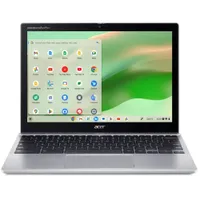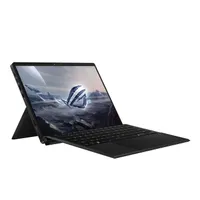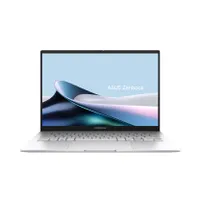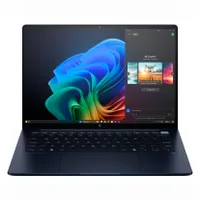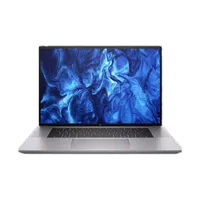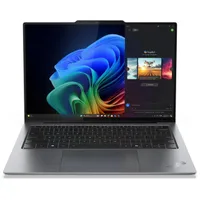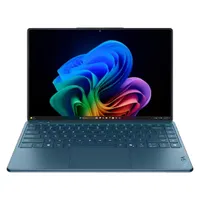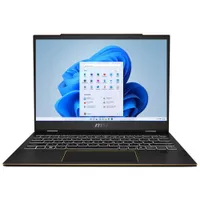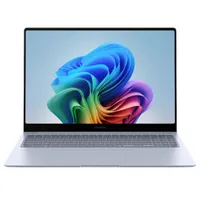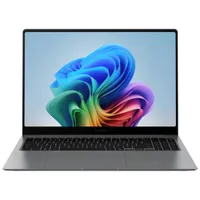I found the 6 best touchscreen laptops for college, work, and creative pros — lab-tested and expert-reviewed
The best touchscreen laptops we've put our fingers on.
Sign up to receive The Snapshot, a free special dispatch from Laptop Mag, in your inbox.
You are now subscribed
Your newsletter sign-up was successful
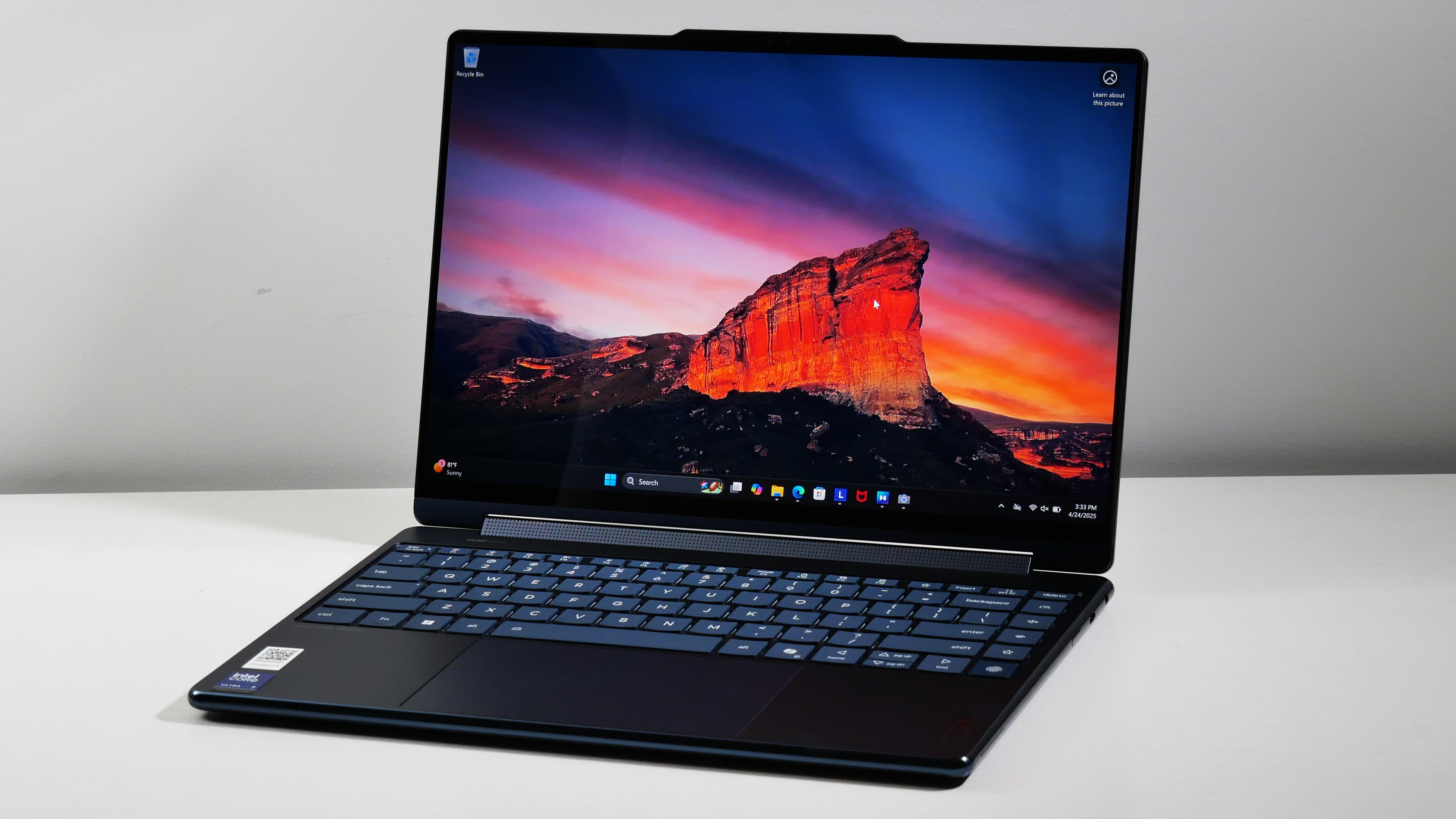
1. The list in brief
2. Best overall
3. Best budget
4. Best Chromebook
5. Best OLED
6. Best ultraportable
7. Best business
8. Benchmark comparisons
9. Recently reviewed
10. Find your perfect touchscreen
11. FAQs
12. How we test
13. Why trust Laptop Mag
The best touchscreen laptops cover a wide spectrum of performance powerhouses, budget-minded stalwarts, entertainment wonders, and versatile 2-in-1s. Toss in a long battery life, and it's no wonder they're a great value for anyone who likes navigating with a screen instead of a touchpad — and you'll often find them among Laptop Mag's best 2-in-1 laptops and best laptops overall, too.
Our new favorite touchscreen laptop is the 2-in-1 Asus Vivobook 16 Flip. With commendable speed, battery life, and a vibrant 16-inch OLED panel, it's a strong value. If you need something cheaper, the Dell Inspiron 14 Plus offers incredible multitasking performance and over 18 hours of battery life for under $1,000. If you want the best, thinnest, and lightest touchscreen laptop available, check out the Asus Zenbook S 14.
If you're not sure you'll need a touchscreen, check out our best laptops page, which includes non-touch models. If you are looking for a touchscreen to do specific creative work, the best laptops for Photoshop or the best laptops for graphic design include touchscreen laptops geared for those specific tasks. If you want to save money, our curated selection of the best laptop deals is an excellent, up-to-date resource.
This page is constantly updated based on our latest reviews to reflect Laptop Mag's current picks for the best touchscreen laptops in 2025.
The Quick List
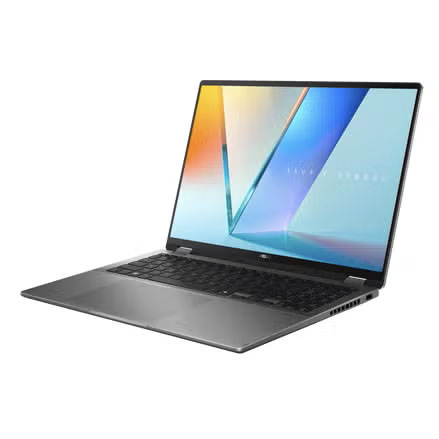
Best overall
The Asus Vivobook 16 Flip is the best 2-in-1 you can grab today for its versatility and performance. Period.
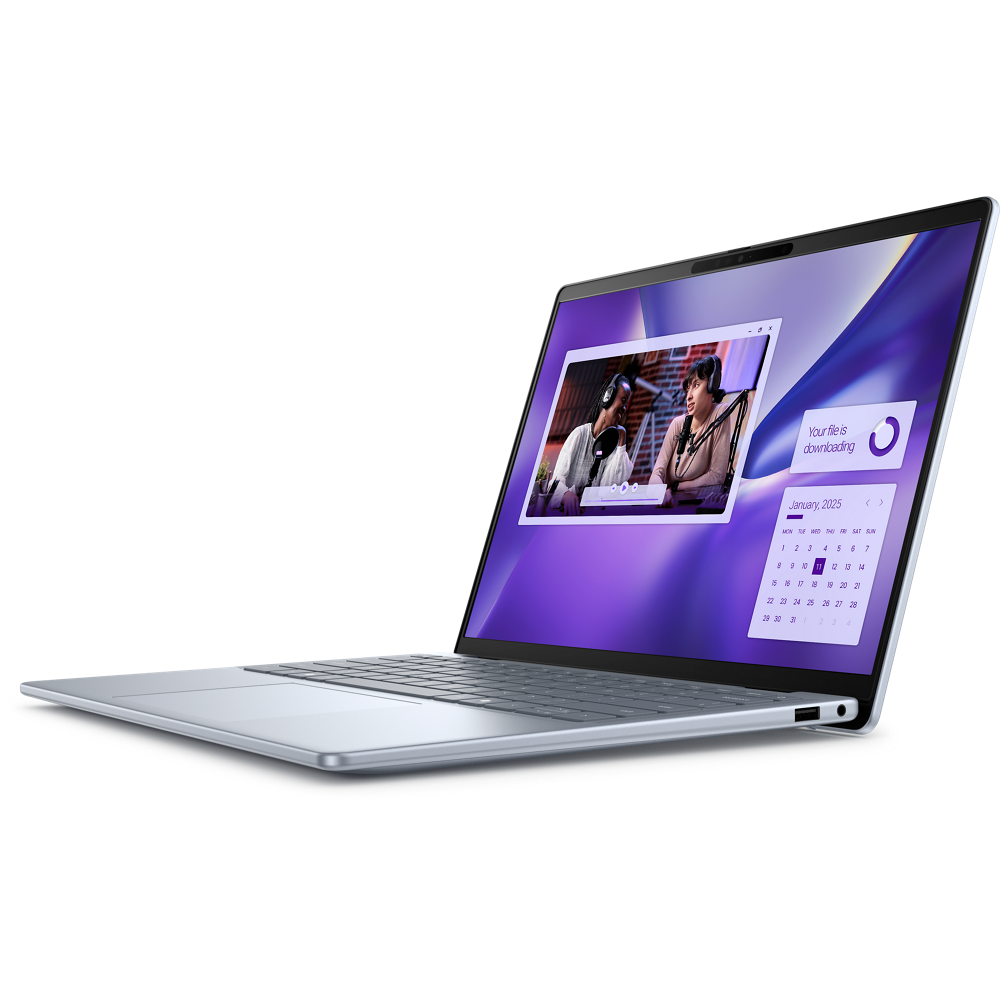
Best budget
The Inspiron 14 Plus makes up for its lackluster display with a speedy, Snapdrgon X Plus processor — and it has one of the longest battery lives we've ever seen in a Windows laptop.
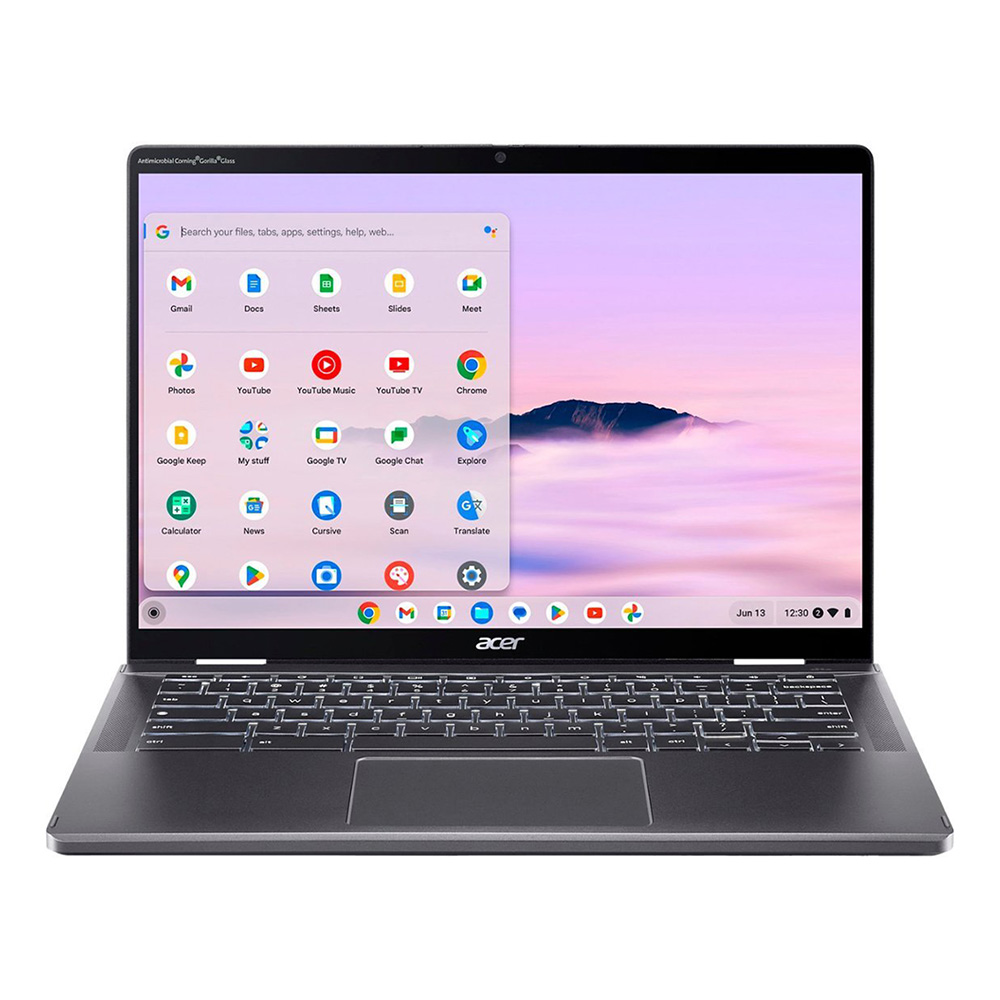
Best Chromebook
One of the most popular Chromebooks now comes with a free trial of Gemini Advanced, which includes access to Google's enhanced AI model and 2TB of cloud storage.
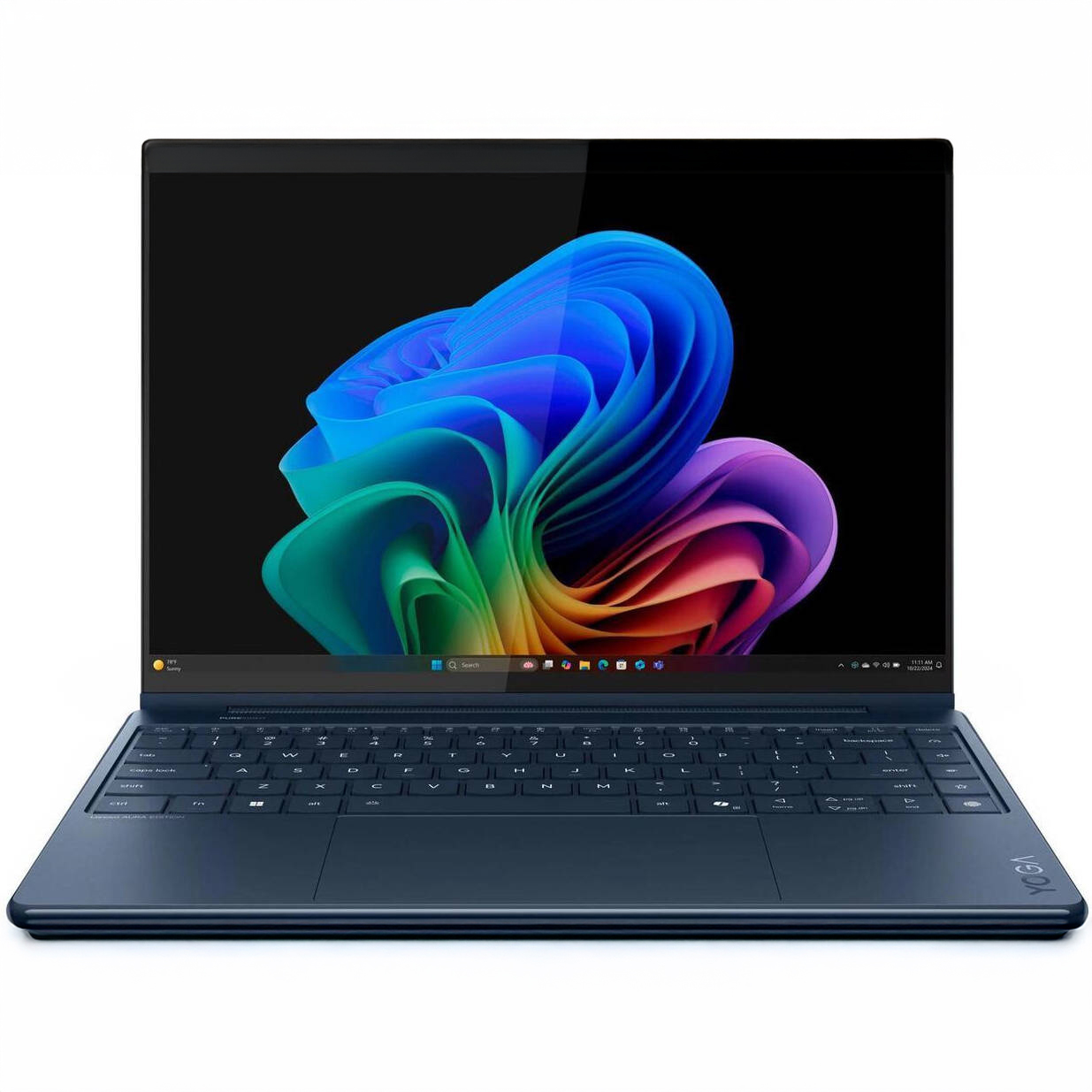
Best OLED
This Lenovo Yoga display's color accuracy is outer worldly. Images are sharp, vivid, and perfectly saturated. Its over 400-nit peak brightness helps ward off distracting glare, too.
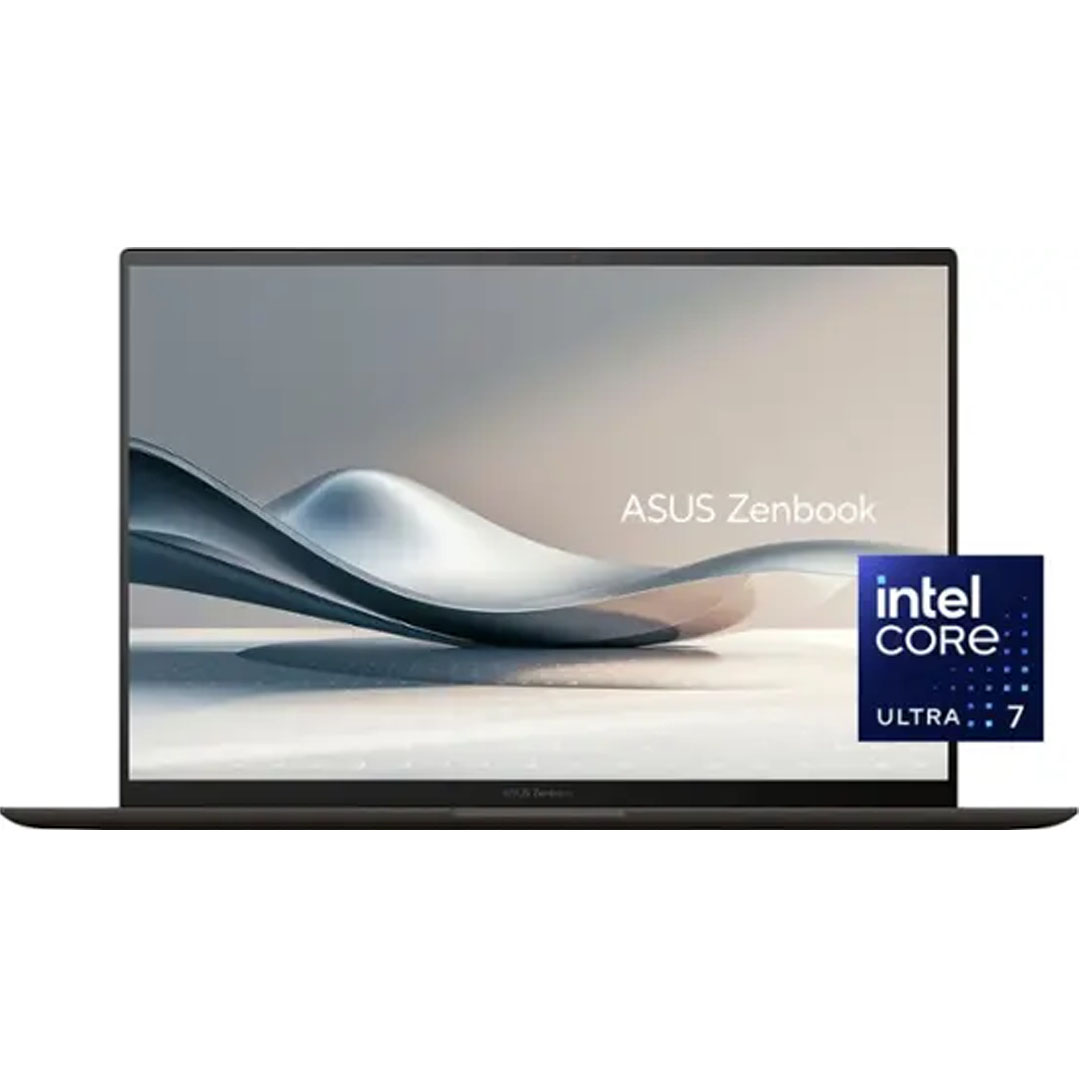
Best ultraportable
This laptop has the most performance and battery life packed into one of the thinnest laptops currently on the market — especially for the price.
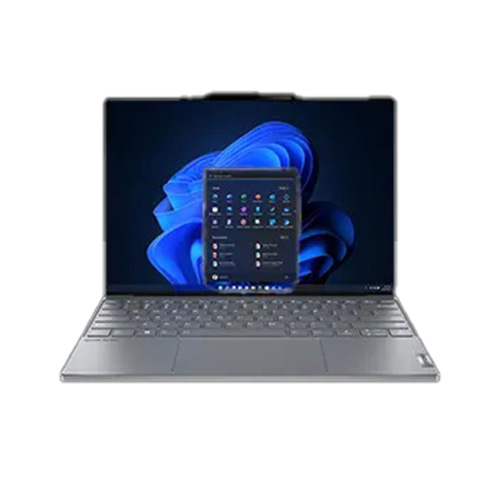
Best business
Mic quality, a good 1080p webcam, and portability make the Lenovo ThinkBook 13x G4 a great choice for anyone who needs a work computer, especially if you travel frequently. It won't scald your lap, either.

Joanna Nelius has reviewed laptops and computer hardware since 2018 including numerous touchscreen laptops. Her work has appeared in The Verge, USA Today, Gizmodo, PC Gamer, and Maximum PC. She holds an MFA from Chapman University and works as a creative writing instructor.
Best overall
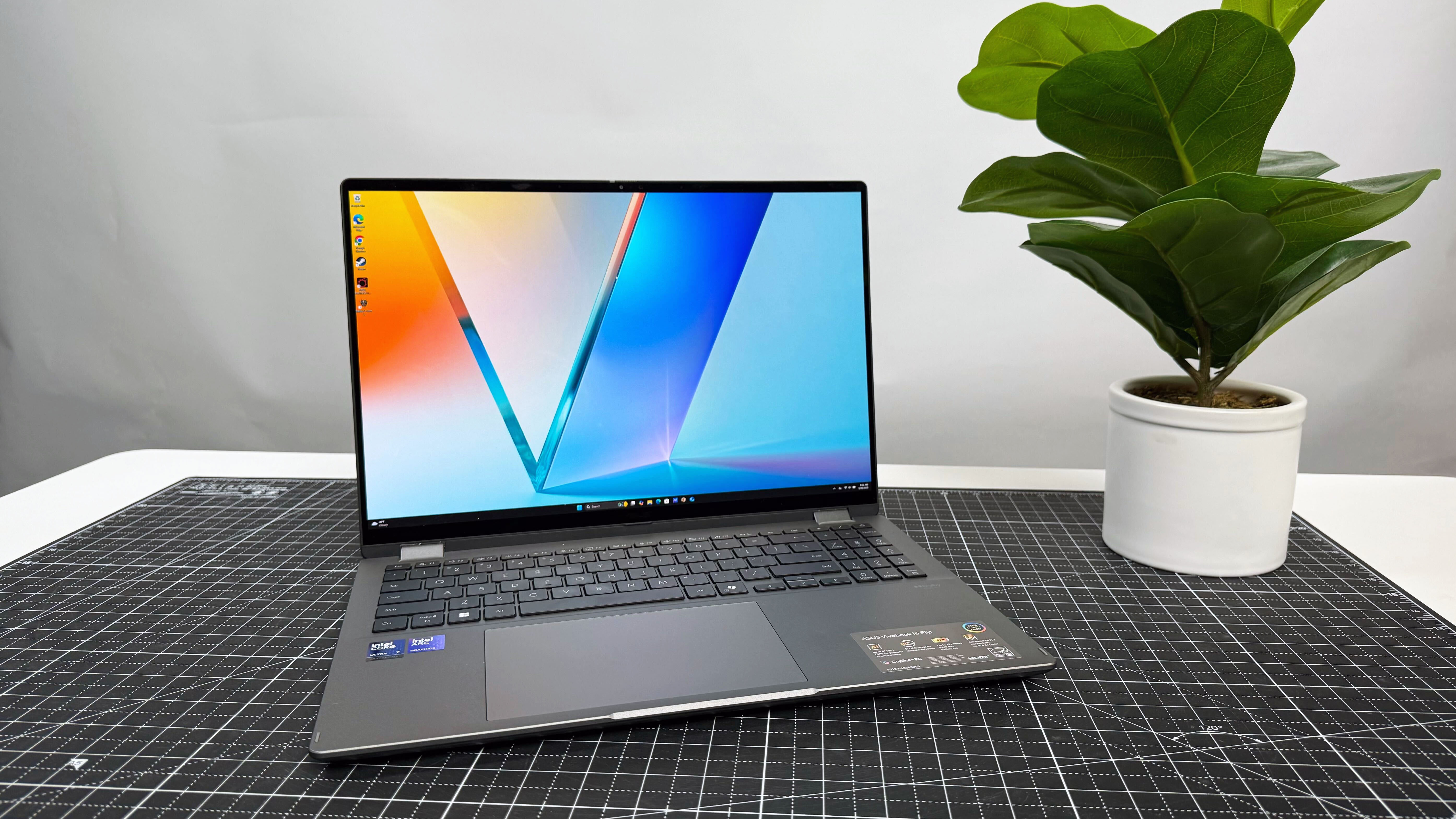
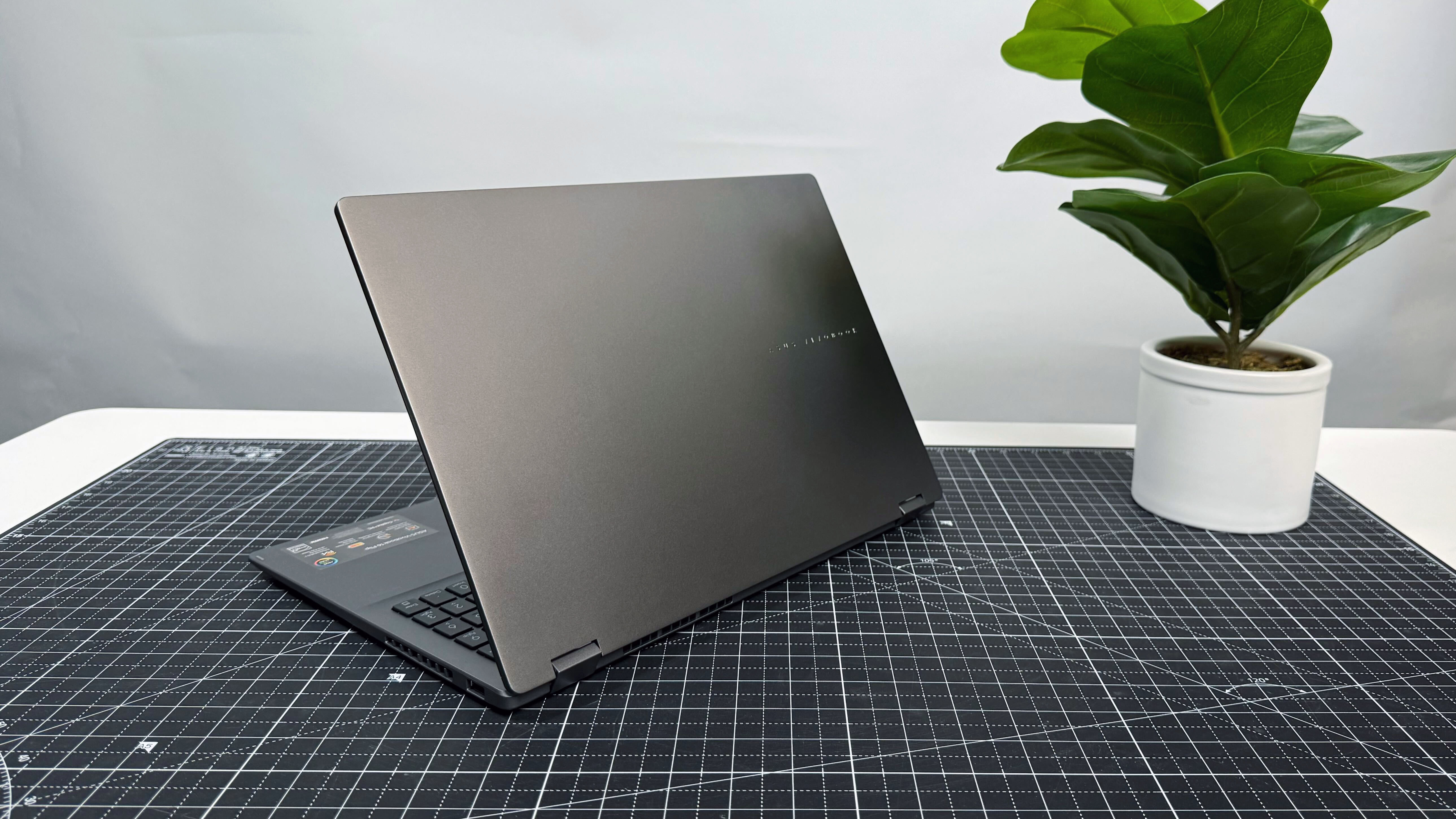
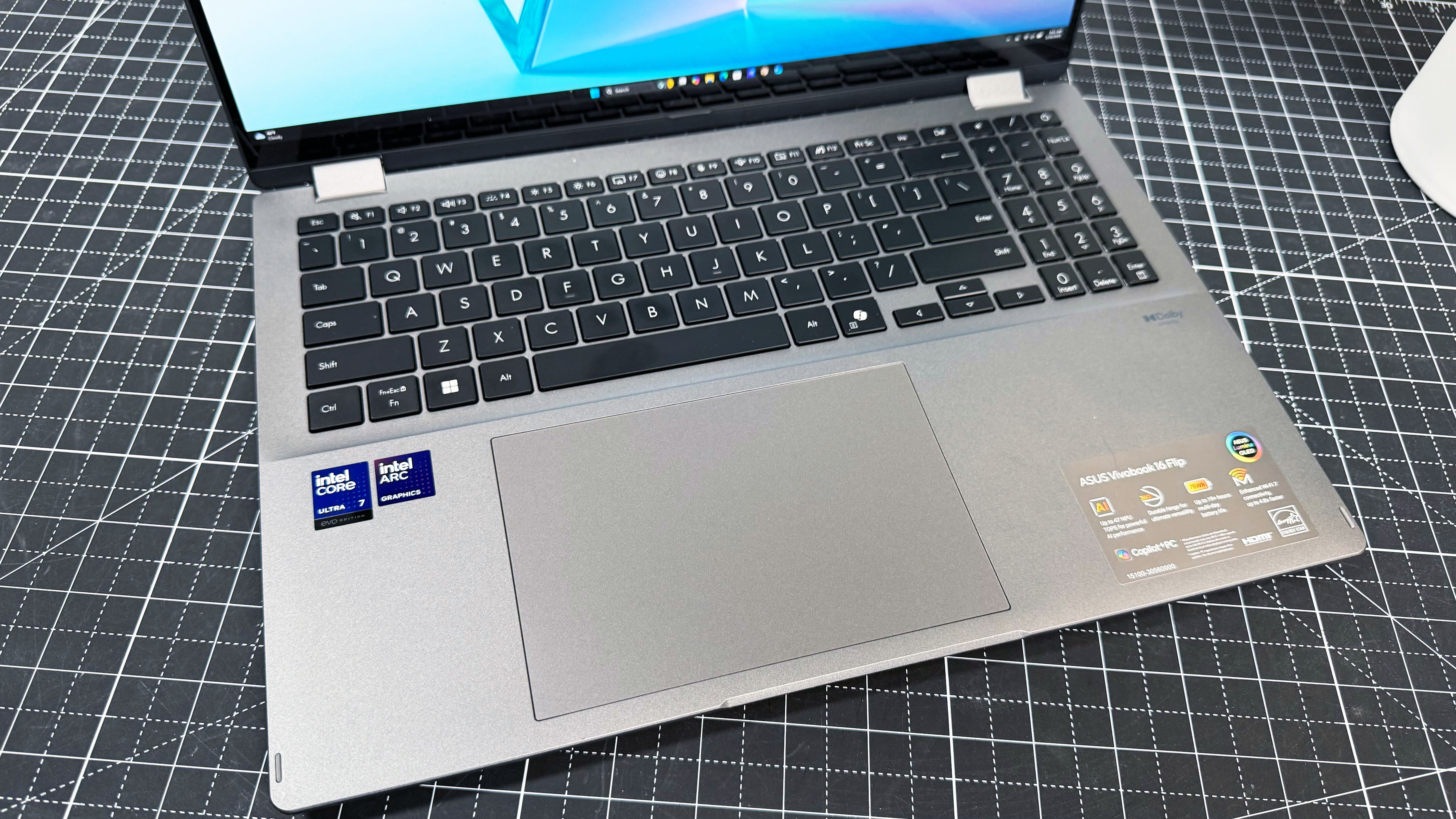
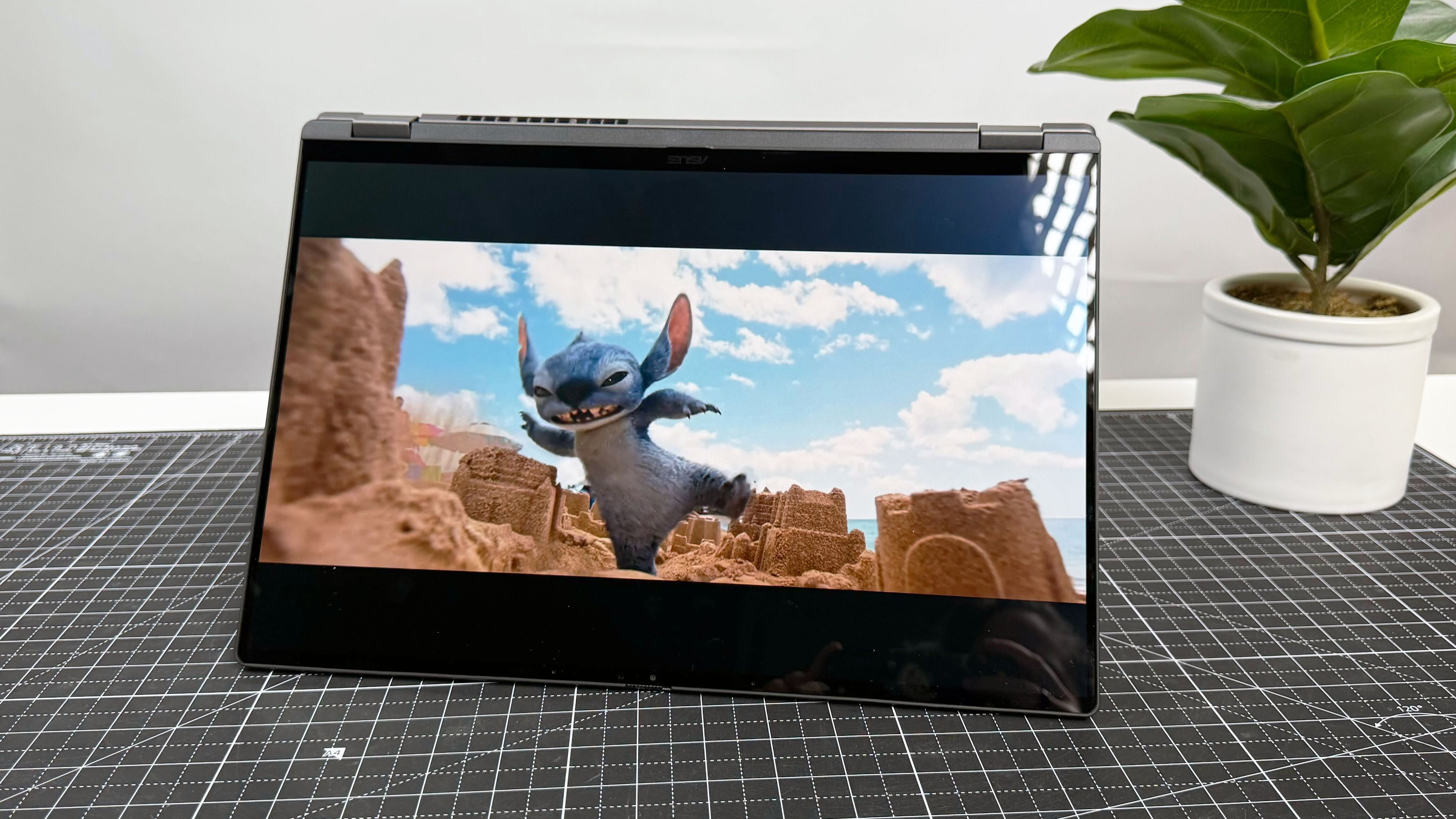
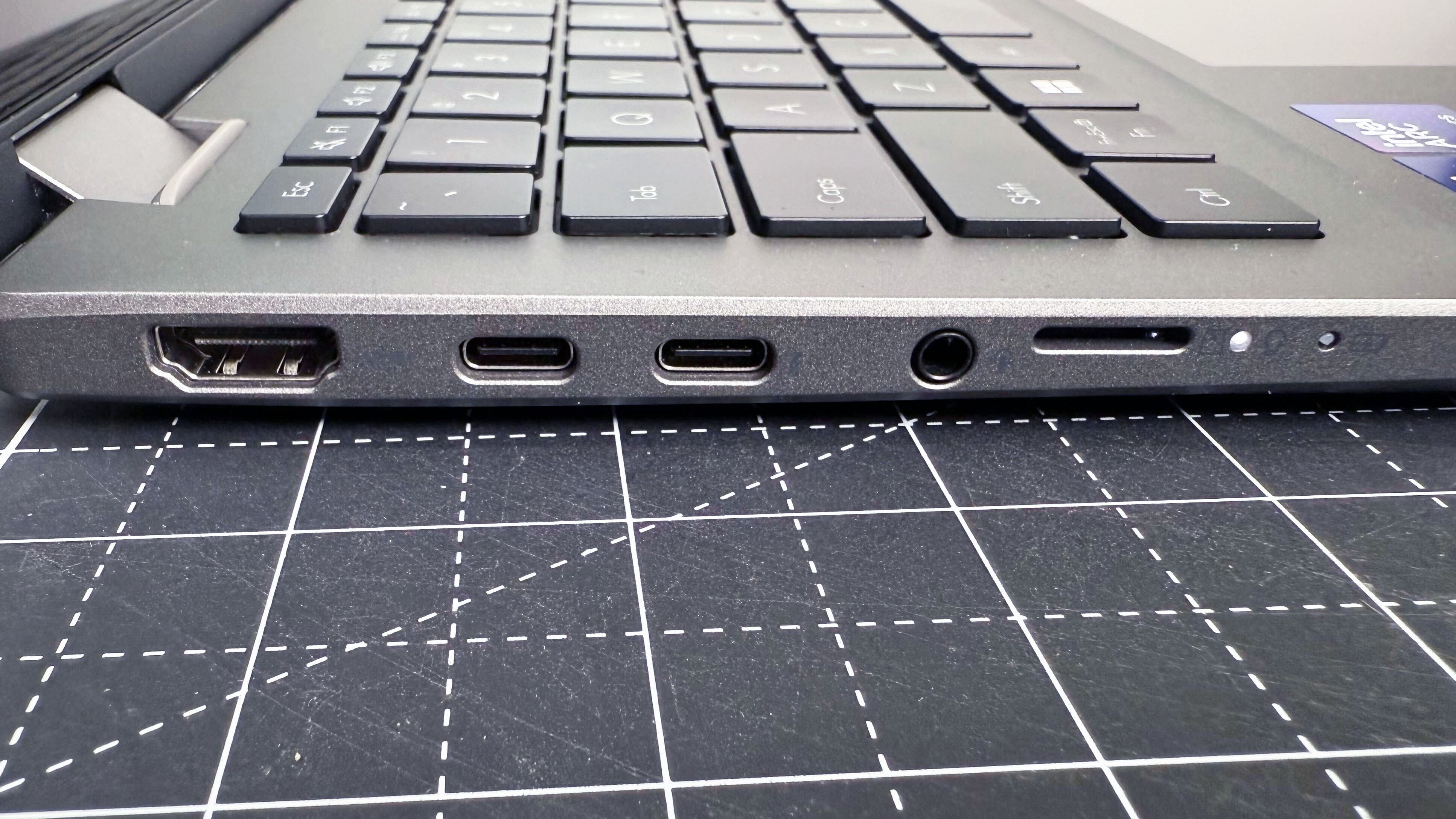
Specifications
Reasons to buy
Reasons to avoid
The Asus Vivobook 16 Flip is a near ideal 2-in-1 laptop that features a striking OLED display, a fast and efficient performance, and even surprisingly good gaming performance.
✔️ You want performance that doesn't sacrifice battery life. Up to 14 hours of without a charge sounds like a browser tab-hoarder's dream.
✔️ You want a display that could put a kaleidoscope to shame. This laptop's OLED display offers excellent DCI-P3 gamut coverage, which produces a vibrant array of colors and excellent contrasts.
✖️ You want a thinner or lighter laptop — a drawback of many 2-in-1s. This one is 0.69 inches at its thickest point and weighs nearly 4 pounds.
✖️ You like springy and clacky keys. This laptop's membrane key switches might feel too mushy, especially you regularly use a mechanical keyboard.
2-in-1 laptops are designed for a wide range of situations, and as Laptop Mag staff writer Madeline Ricchiuto mentions in her review of the Asus Vivobook 16 Flip, we "tend to be picky about our 2-in-1s." But the Flip offers a “compelling combination” of solid performance, power efficiency, a stunning OLED display, and smooth iGPU gaming performance — making it the best touchscreen laptop on the market.
Its speedy Intel Core Ultra 7 258V processor and 32GB of RAM offer ample multitasking power, but the laptop's battery life doesn't suffer for all the performance it cranks out. In our battery rundown test, it surfed the web for nearly 14 hours before it needed a charge — 3 hours longer than our previous pick, the HP Spectre x360 16. And in our Handbrake transcoding test, it converted a 4K video to 1080p in under 8 minutes. That's not the fastest we've ever seen, but for a 2-in-1 laptop that's not primarily designed to be a video editing or graphic design laptop, that's good!
The Flip doesn't have the brightest OLED display Laptop Mag has ever tested, but a max of 356 nits of brightness is enough to ward off most glare. (Try to angle the screen away from any harsh overhead lighting, though.) A good thing, too, since the display produces incredibly vibrant colors and deep contrasts. It covers 84.4% of the DCI-P3 color gamut, which is much more than most competing laptops.
Another of the Asus Vivobook 16 Flip's great features: gaming. Its integrated graphics make most games playable (at least 30 fps) on Medium graphics at 1080p — even Baldur’s Gate III.
See our full Asus Vivobook 16 Flip review.
Best budget
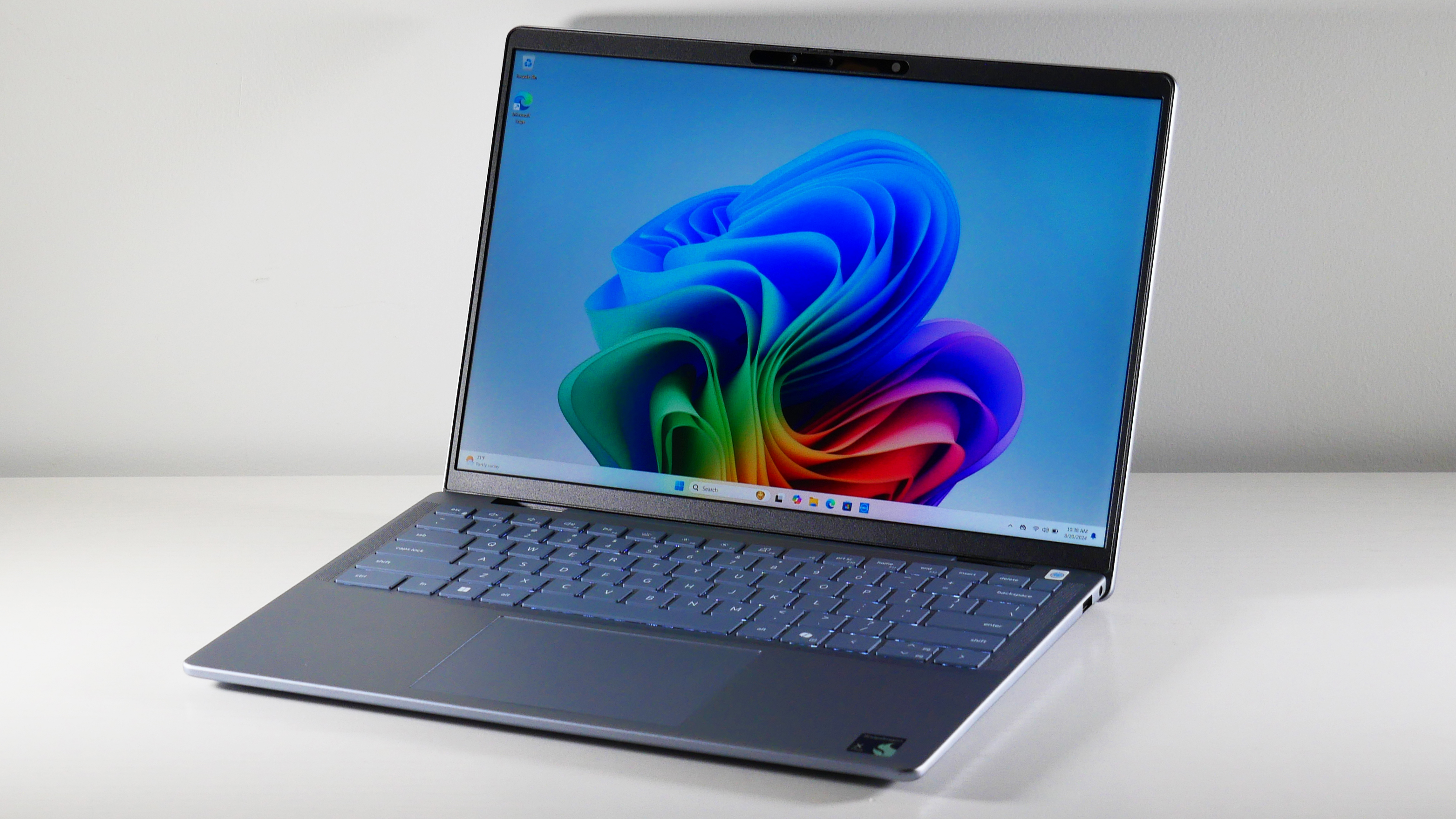
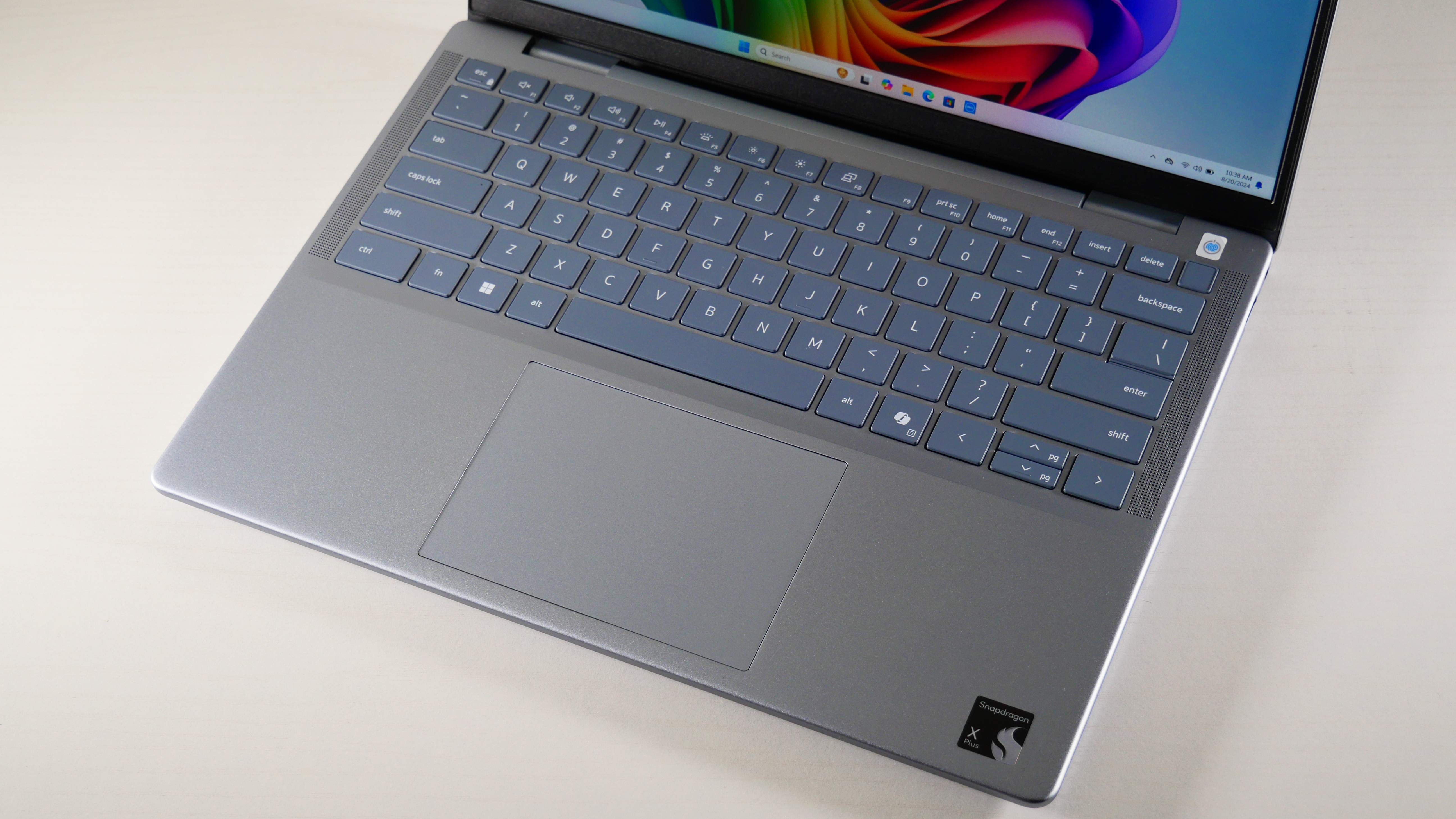
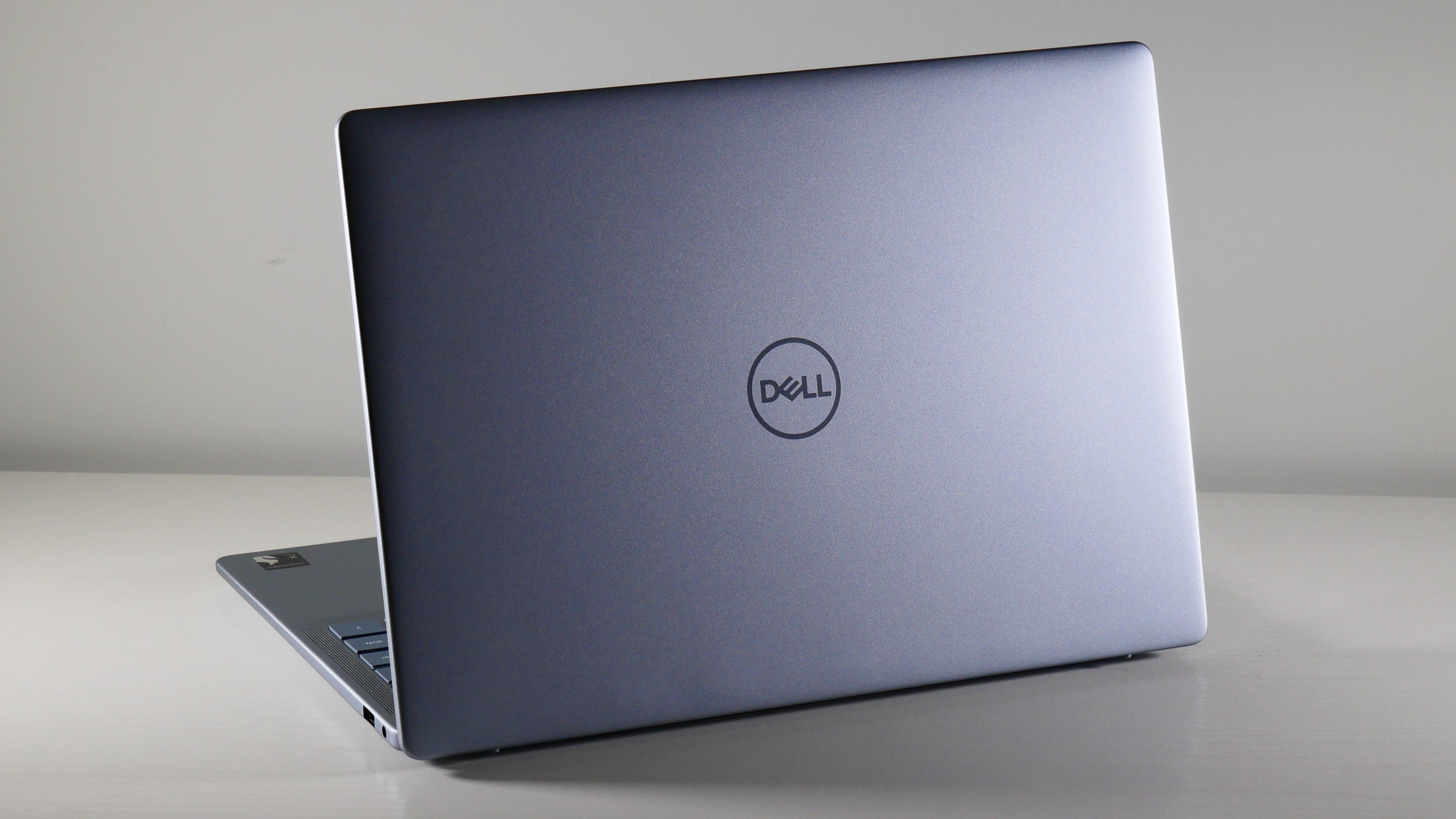
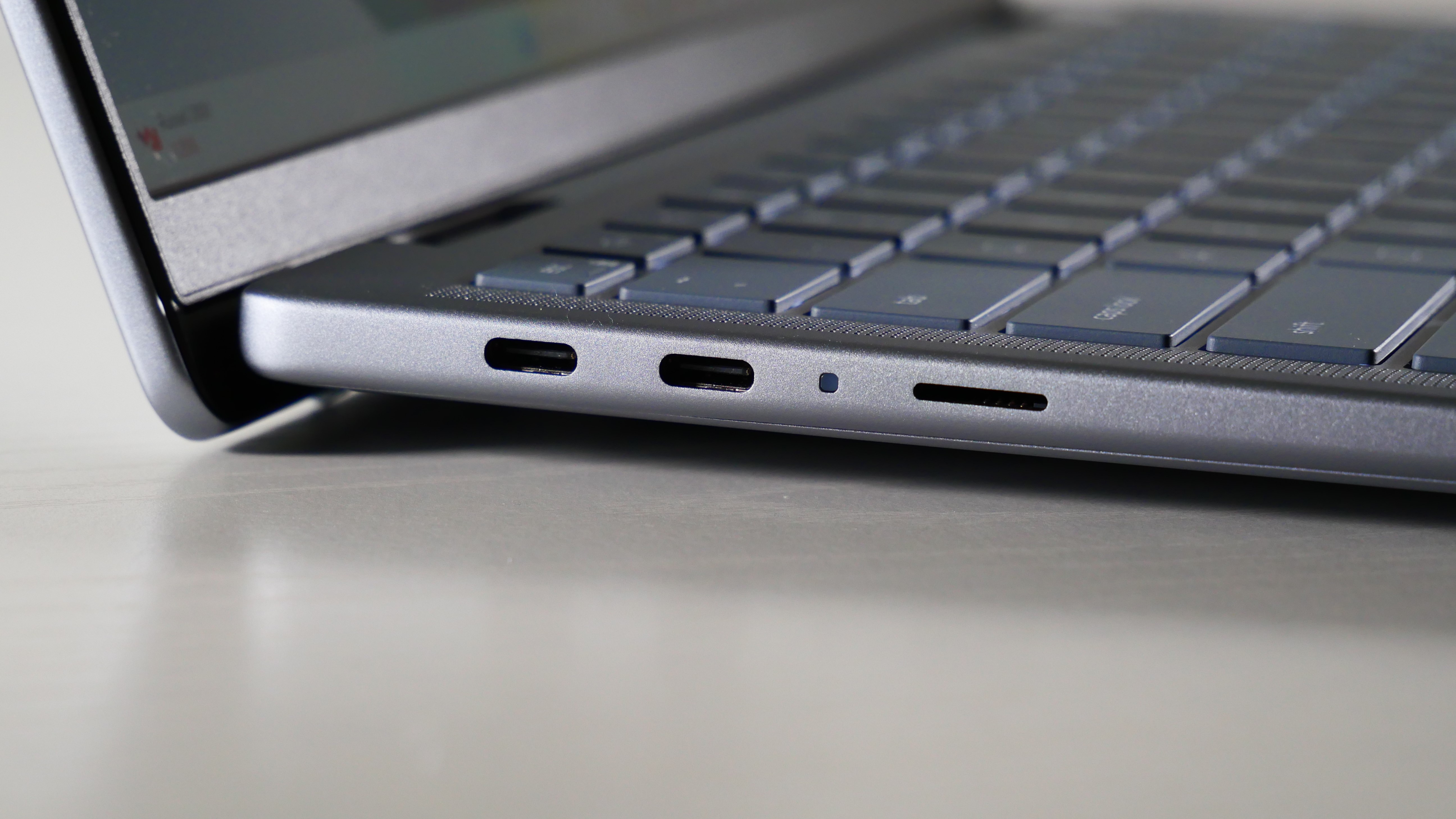
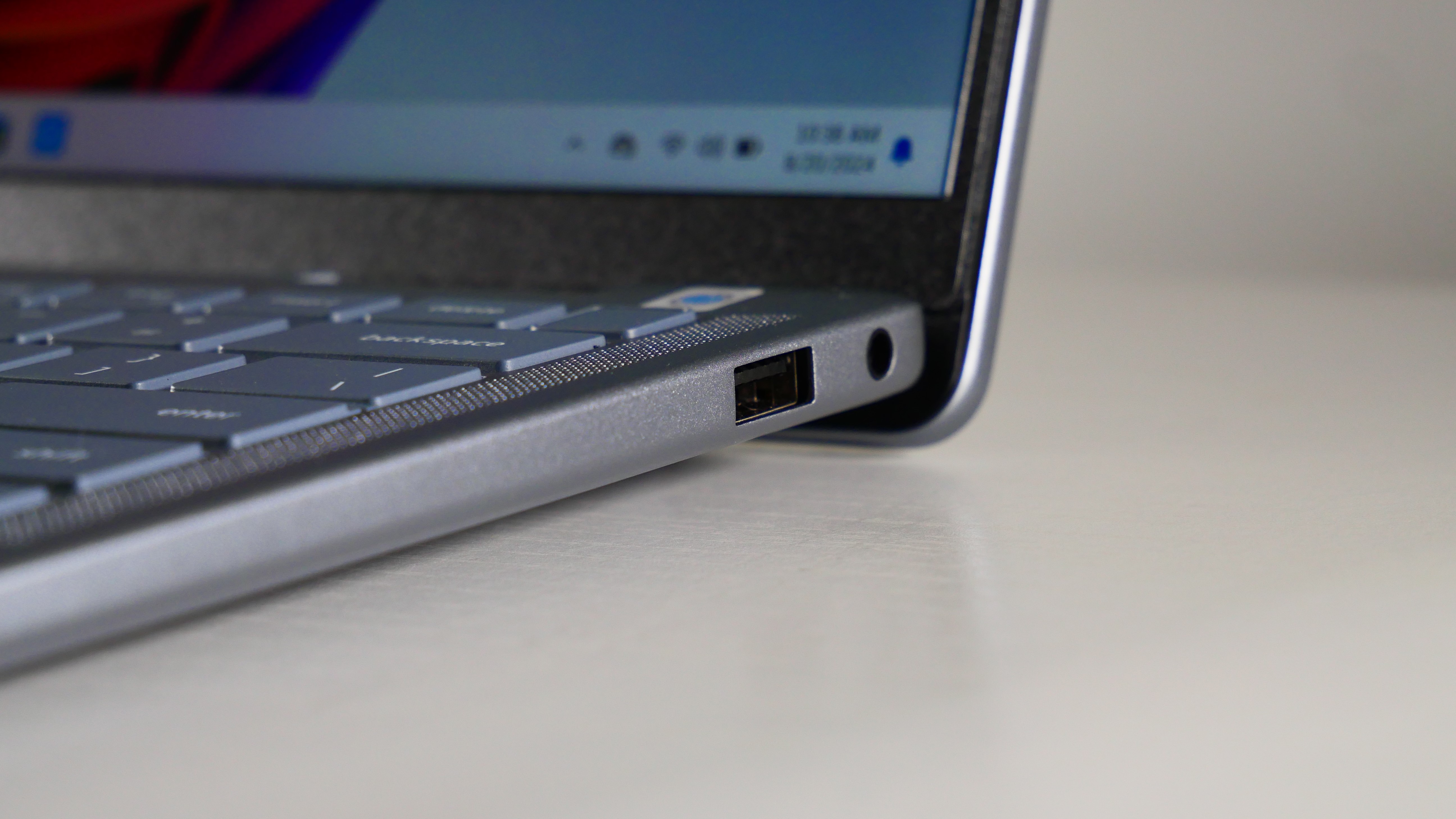
Specifications
Reasons to buy
Reasons to avoid
The Dell Inspiron 14 Plus (7441) nails the important stuff — performance, portability, and battery life — at an affordable price. It also has just enough ports if you want to hook up an external monitor or directly transfer photos from your camera or phone.
✔️ You occasionally (or frequently) forget your laptop charger at home. This laptop, and its 18 hours and 20 minutes of battery life, will save your day.
✔️ You want a laptop cool enough to use in your actual lap. It's a sweet treat to come one that doesn't feel like a pint-sized heatwave, and this one didn't exceed 88 degrees on the underside. That's well below our 95 degree threshold — and the average human body temperature.
✖️ You use or a bunch of niche apps. Snapdragon laptops run Windows on ARM, and while this version has pretty good emulation software this time around, it may not run some apps reliably, or at all. Check if a native ARM4 version exists, first.
✖️ You want a display with bright, accurate colors. Our tests showed this laptop's gamut coverage is almost 10% less than the average of all the premium laptops we've tested, which isn't totally wide enough to begin with — only about 88.7%.
The Dell Inspiron 14 Plus (7441) is part of the first wave of Copilot+ PCs to feature a Qualcomm Snapdragon X processor — and for a budget touchscreen laptop we've seen go on sale for less than $1,000, it's impressive: great performance, great heat management, excellent battery life, and even a solid webcam. Laptop Mag's editor, Rami Tabari, sums it up best in his review: "If your focus is affordability and incredible battery life, the Dell Inspiron 14 Plus is the one to buy."
It has one of the slower Snapdragon X processors, but it sure doesn't feel like it. This laptop flew past the average premium machine in our Geekbench 6.3 overall performance test, 13,281 to 9,726, respectively. It also has one of the longest battery lives we've seen in any laptop: 18 hours and 20 minutes, which blows past the average premium laptop by almost seven hours.
There's more: it has a surprisingly good 1080p webcam that clearly captures fine details like strands of hair, and the contrast doesn't blow out when there's too much light. You can safely keep this Inspiron on your laptop, too, whether you're writing a paper for a history class or streaming the latest gaming news on YouTube.
But here's the sacrifice: this laptop's display color. It's dull, covering only 69.1% of the DCI-P3 color gamut. (The average premium laptop covers 88.7%.) Brightness is its redeeming quality: a max of 470 nits.
See our full Dell Inspiron 14 Plus review.
Best Chromebook
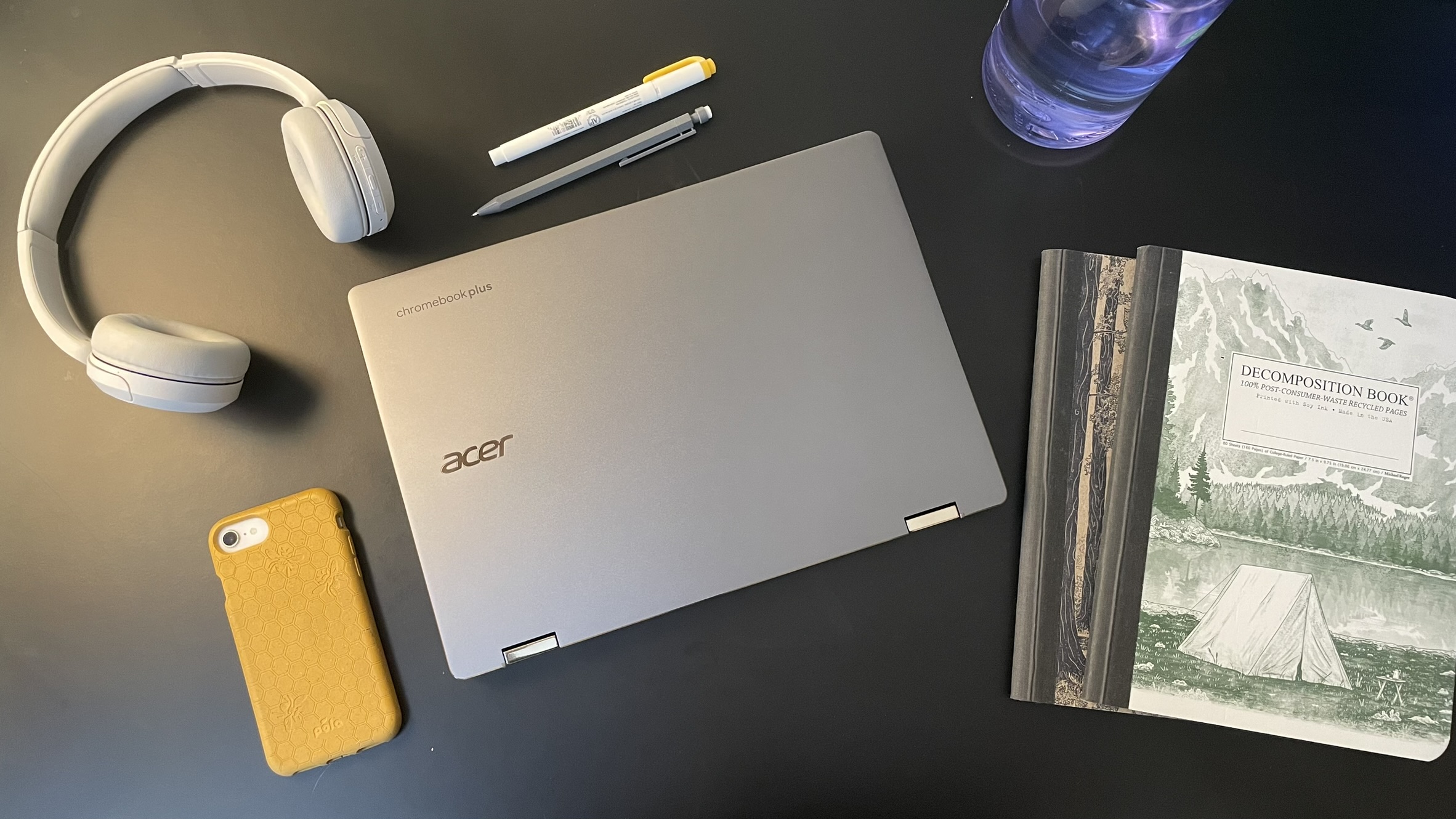
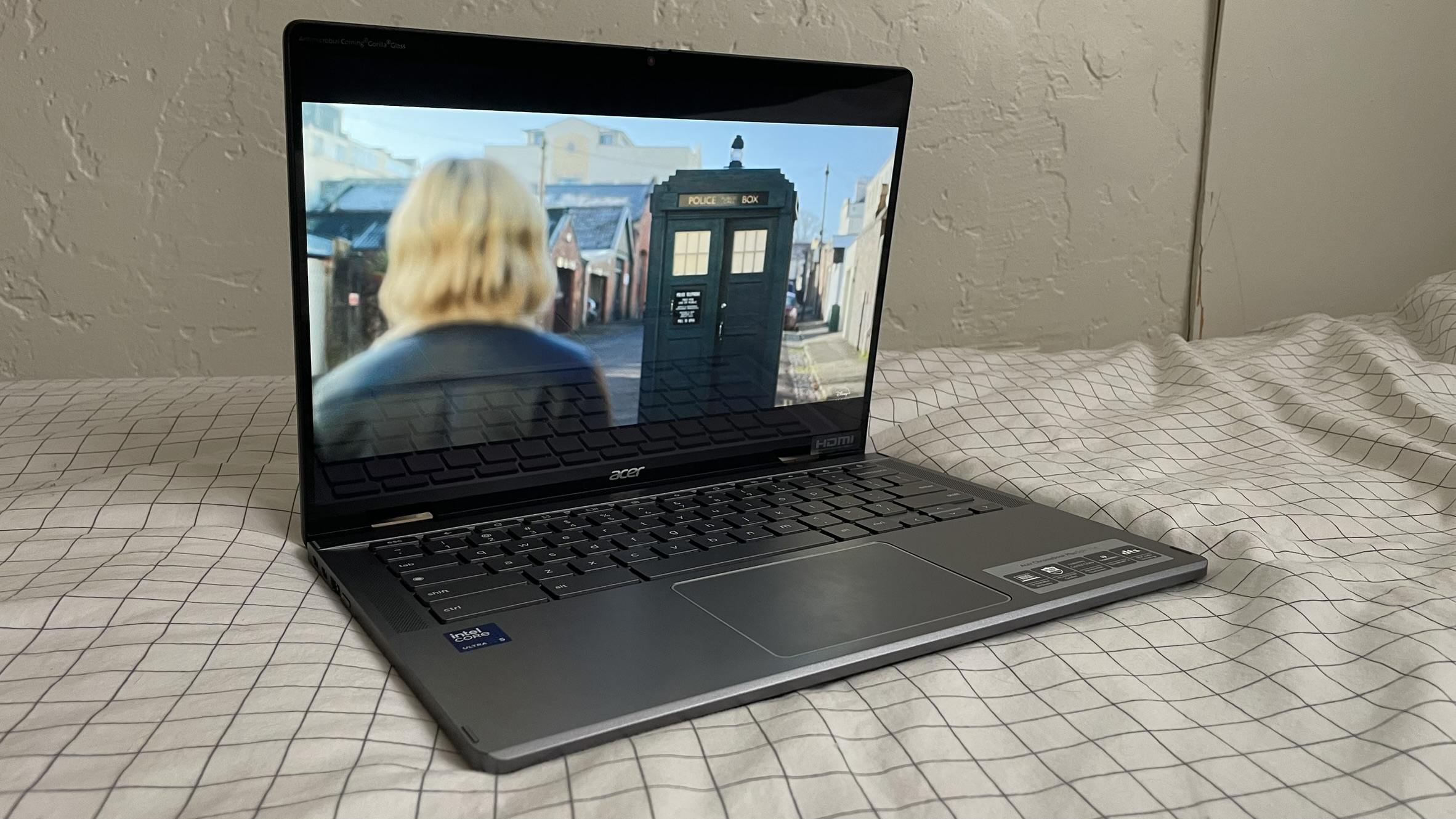
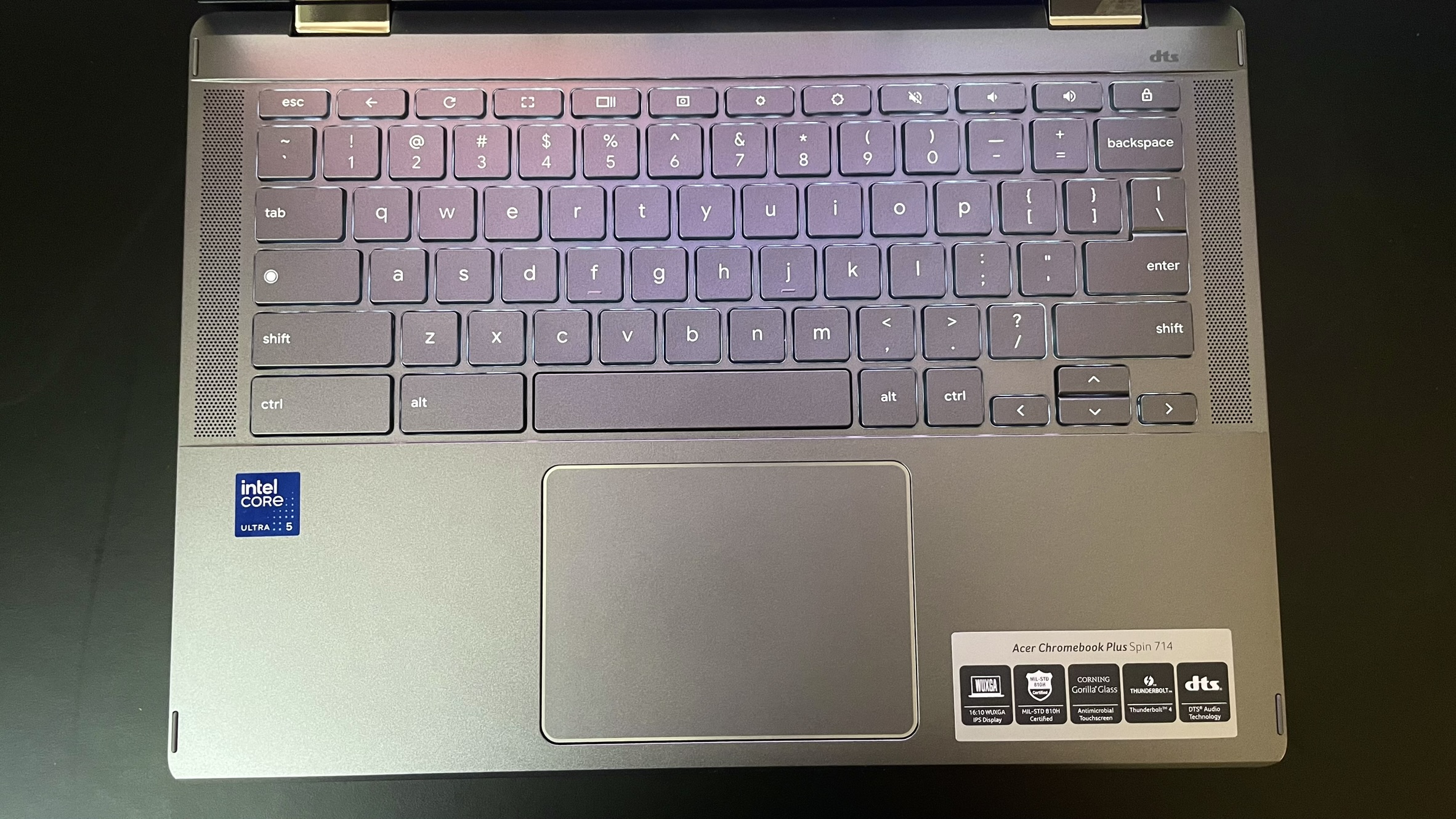
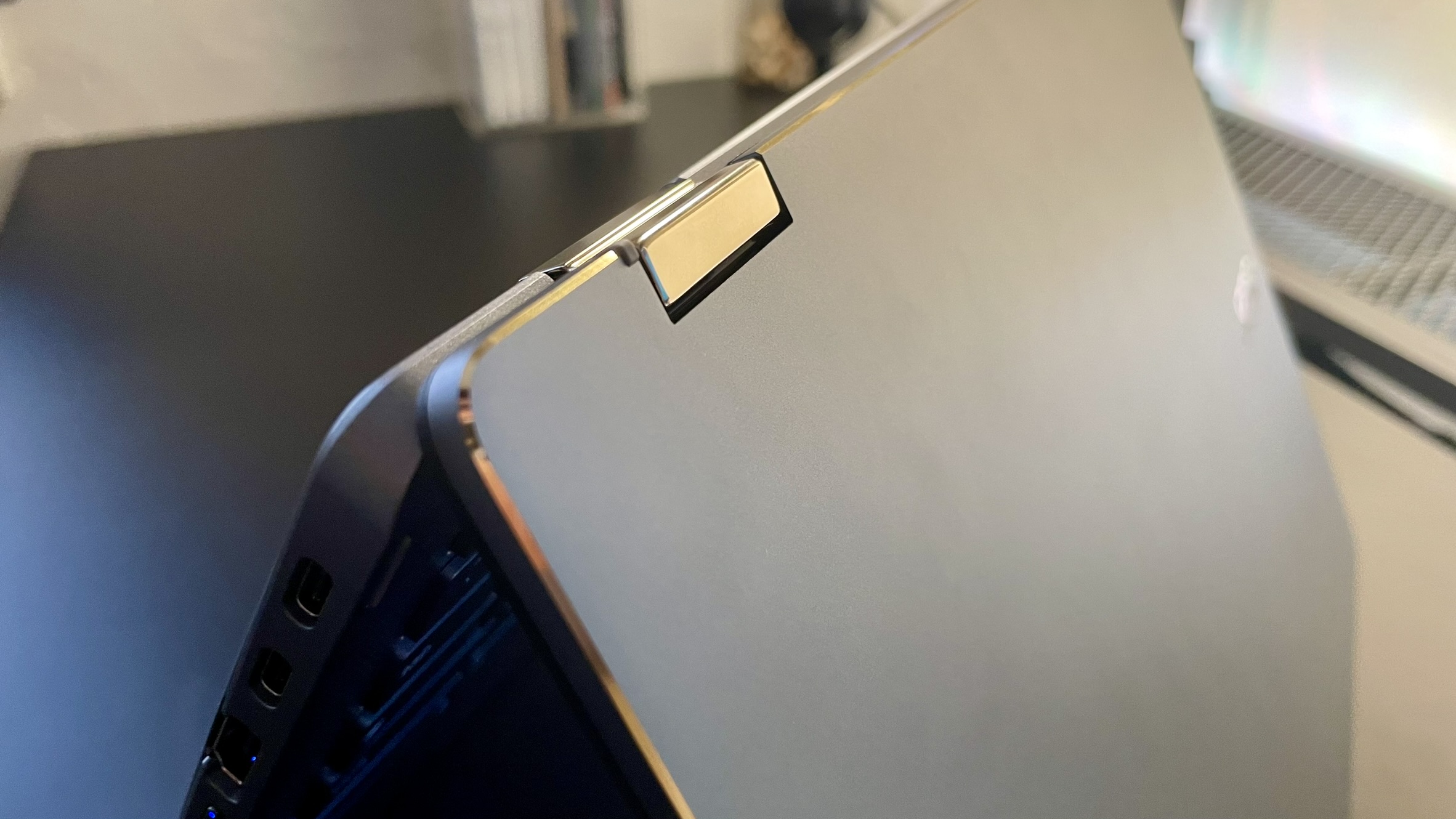
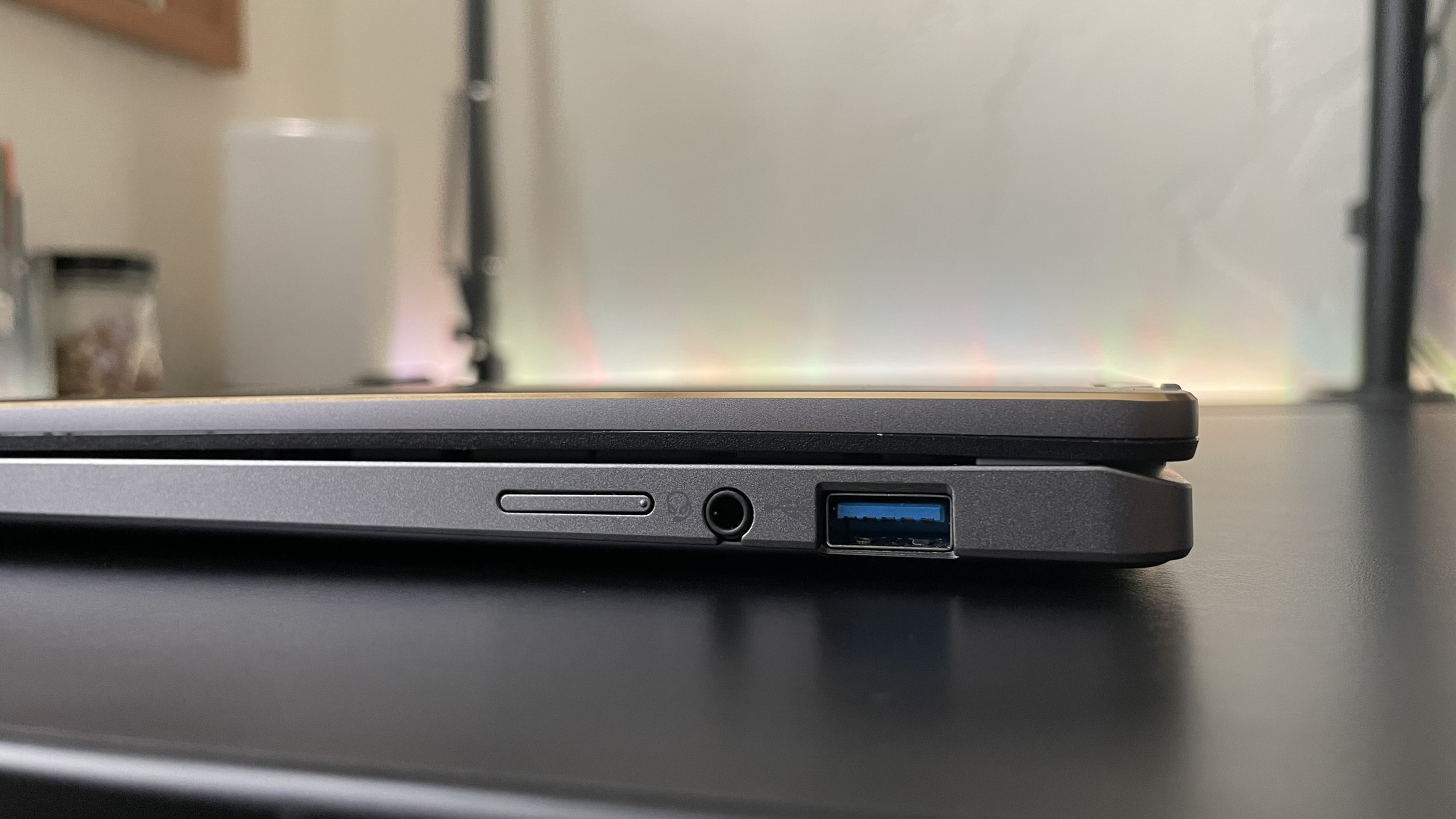
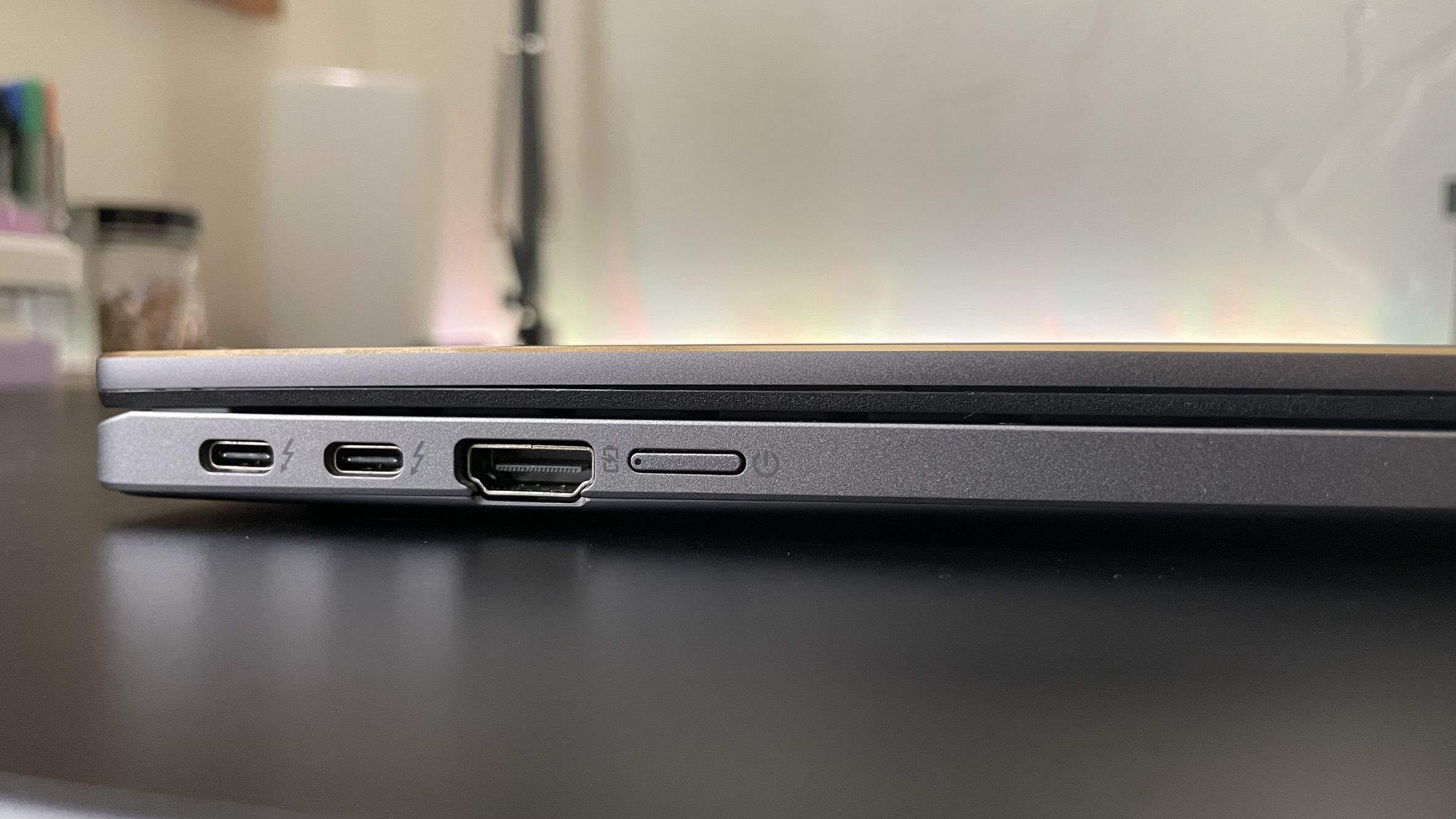
Specifications
Reasons to buy
Reasons to avoid
The Acer Chromebook Plus Spin 714 is stylish, comfortable, and comes with a powerful, Intel Core Ultra processor. It's also a 2-in-1 laptop, a bonus for anyone who loves to write by hand.
✔️ You want a Chromebook with a great keyboard. This one has a comfortable layout and pleasantly tactile keys — a far cry from most Chromebooks' mushy keyboards.
✔️ You want to try Google's AI features. This laptop comes with a free, 1-year subscription to Gemini Advanced that includes 2TB of cloud storage.
✖️ You need a responsive touchpad. From finger touch to on-screen action, the one in this Chromebook lagged a bit every now and then.
✖️ You need double-digit battery life. This Chromebook gets just over 9.5 hours, which is still on the short-side compared to some other Chromebooks and some Windows laptops.
I definitely agree with our reviewer, Stevie Bonifield, in that the Acer Chromebook Plus Spin 714 is "ideal for students or professionals who mainly work through web browsing."
Typing with its keyboard feels comfortable and crisp. Movie dialogue comes through its speakers loud and clear. It can transform into a tablet, which makes it easier to use certain Google Docs features like handwritten annotations. And as an added bonus, buyers get a free, 1-year subscription (normally $20 per month) to Gemini Advanced, Google's suite of AI tools like Deep Research.
Its Intel Core Ultra processor handles multiple open Chrome tabs, video streaming, and other basic tasks with legerity. In the Geekbench overall performance test, the Spin performed admirably with a score of 6,335, making it 8% faster than the average Chromebook (5,246) and in-line with our real-world experience.
While we wish its battery life was longer, it can still last through a typical day at work or school — but that's dependent on how bright you set the display and how often you'd use this Chromebook throughout the day.
For our battery run down test, we set the display to 150 nits of brightness and have the laptop continuously cycle through a series of web pages until the battery runs out of power. The Spin made it 9 hours and 30 minutes before powering down.
If you have the display set to its maximum brightness of 355 nits, that number can be shorter. Still, that number is higher than some Chromebooks we've tested in the past.
See our full Acer Chromebook Plus Spin 714 review.
Best OLED

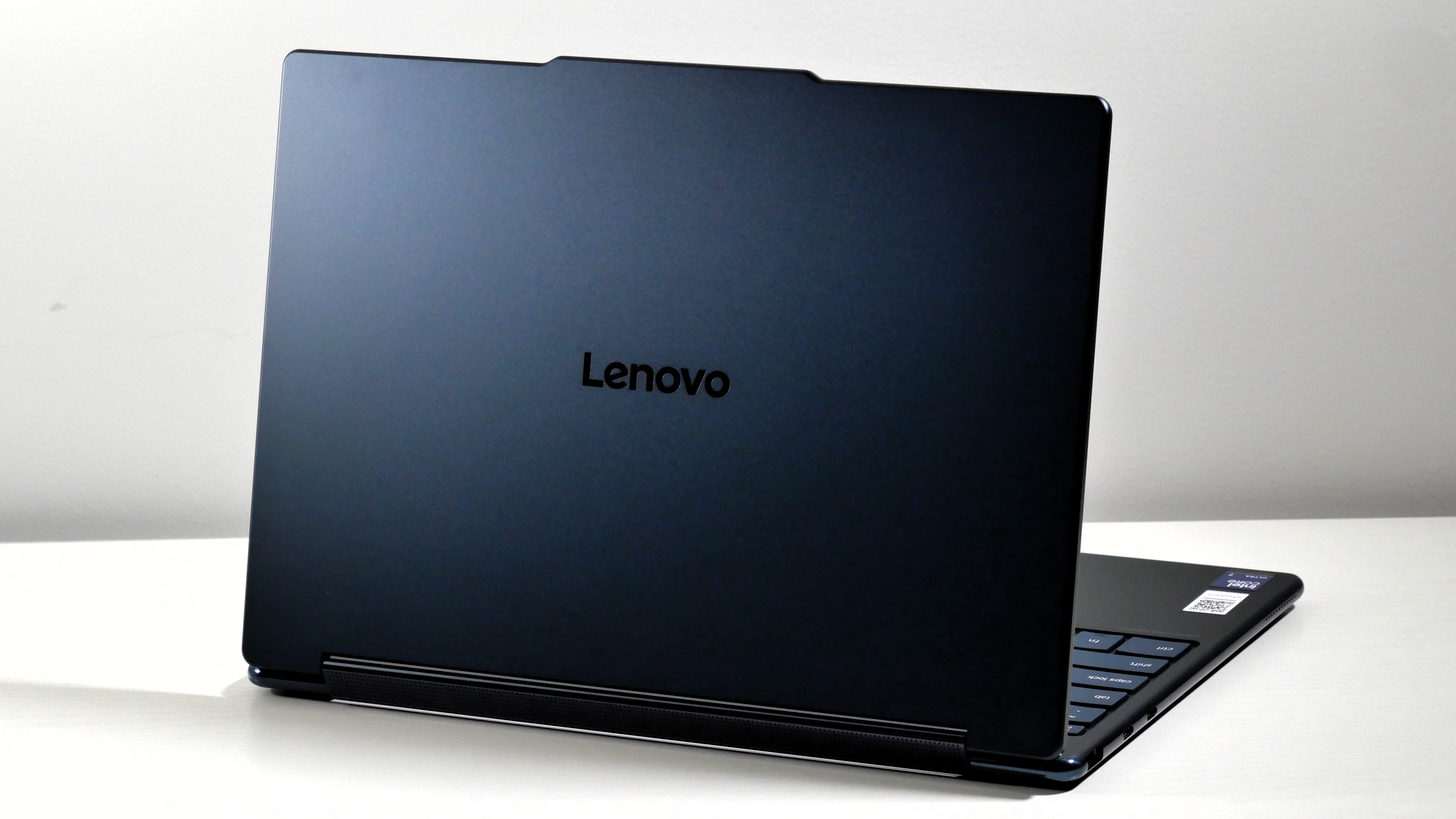
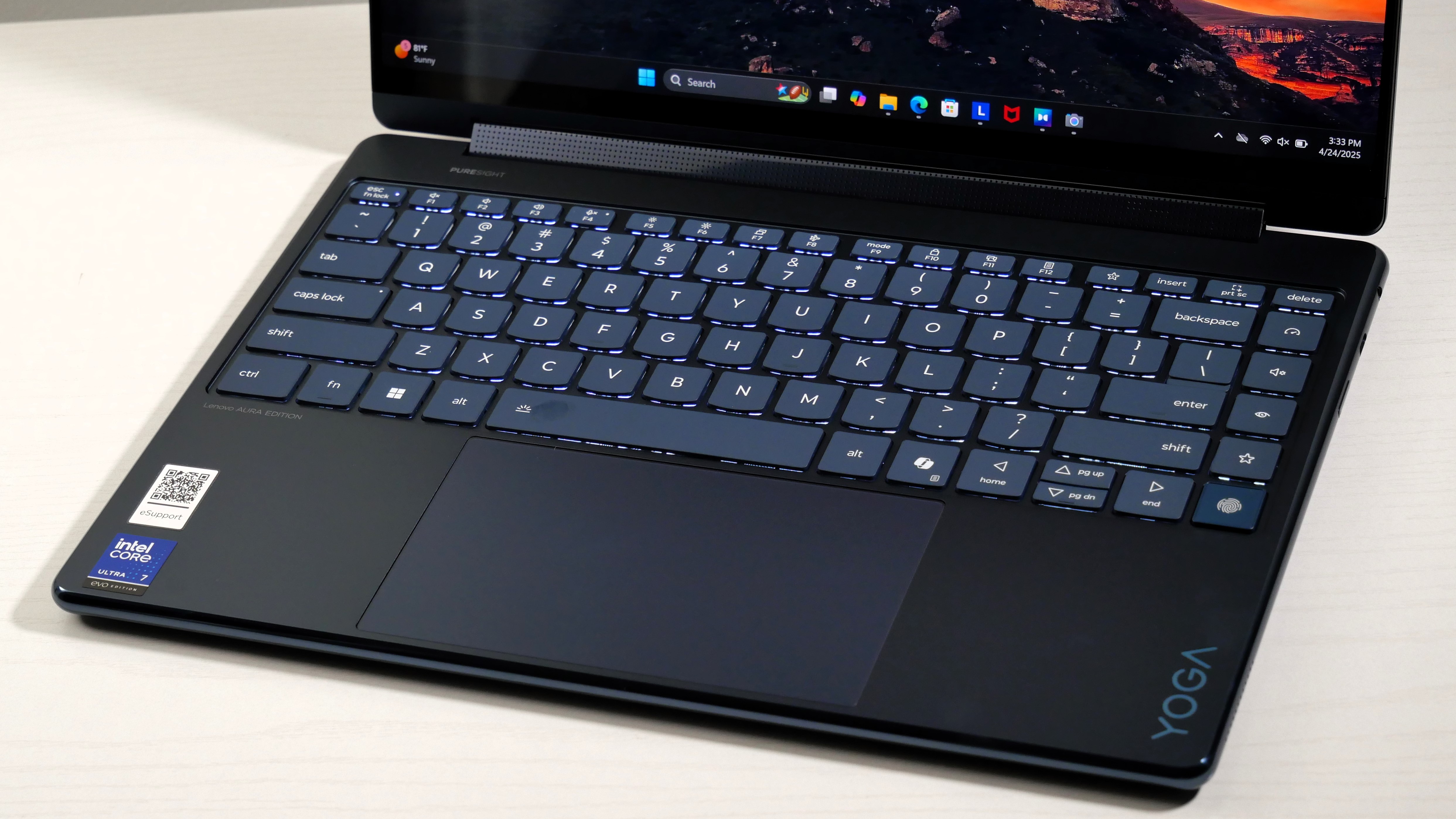
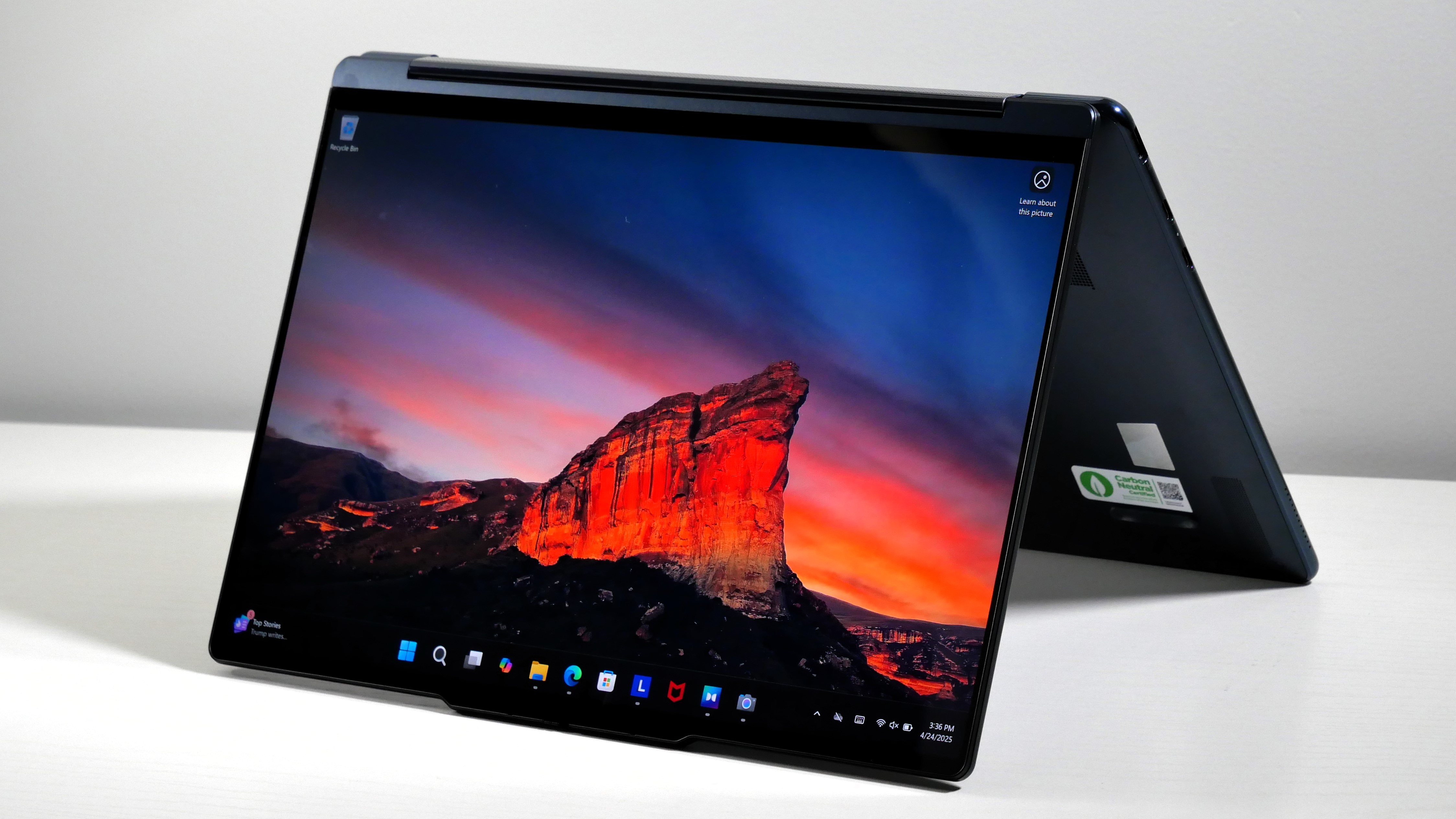
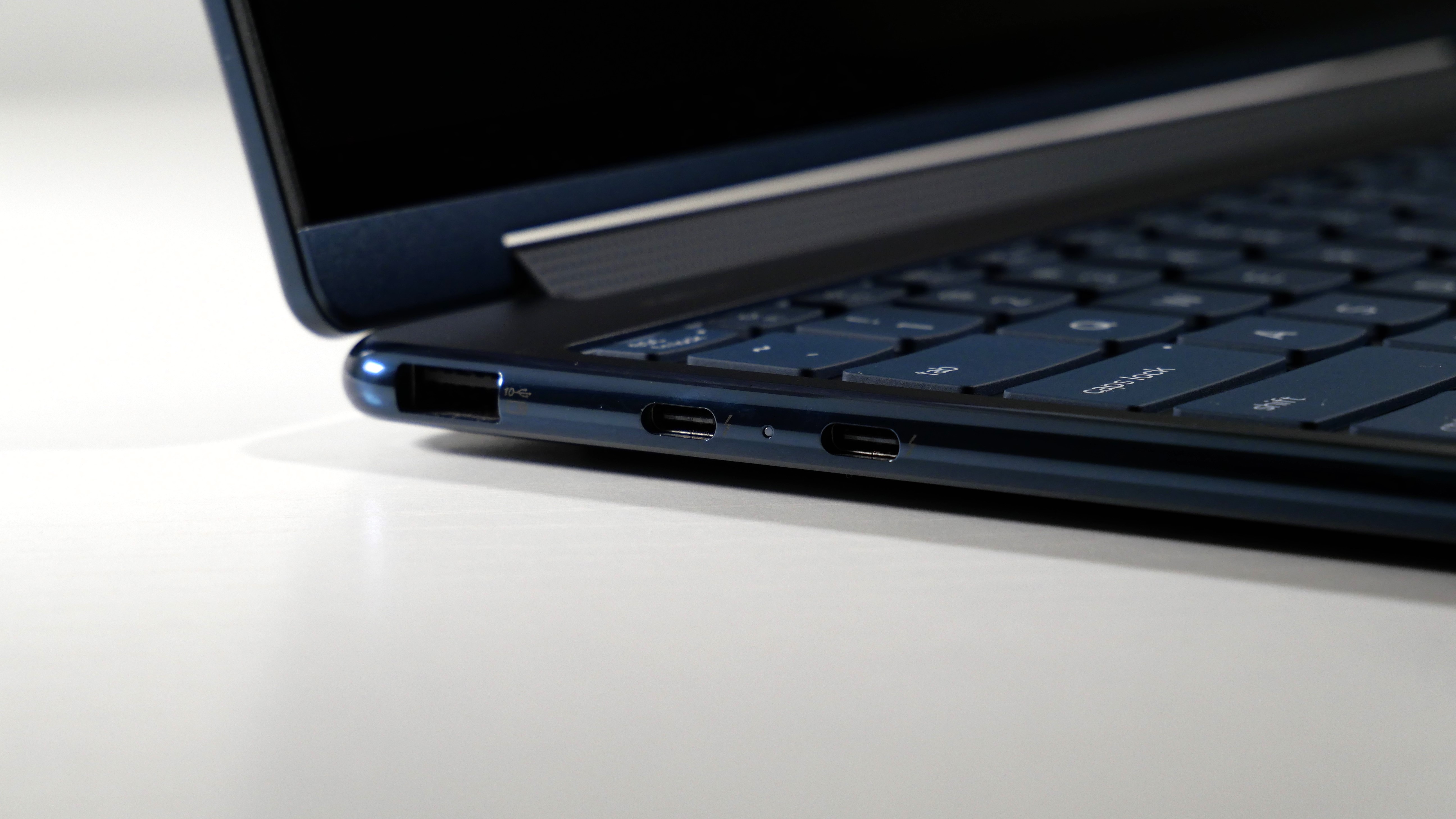
Specifications
Reasons to buy
Reasons to avoid
The Lenovo Yoga 9i 2-in-1 Aura Edition's finely calibrated, color-accurate display presents images with the right amount of saturation and contrast. It's also one of the lightest convertible laptops you can get right now.
✔️ You frequently watch movies on a laptop. With great color accuracy covering over 100% of the DCI-P3 gamut, its OLED display makes everything appear perfectly saturated. The display is super bright, too, over 400 max nits.
✔️ You want convertible laptop that won't break your back. This one is on the lighter and thinner side: 2.9 pounds and 0.65 inches thick, which is pretty good for a 2-in-1.
✖️ You want better processing performance at a lower price. This laptop's CPU isn't prohibitively slower than the competition, but its higher price tag is worth noting.
✖️ You need a 16-inch display. This laptop is only available in one configuration — with a 14-inch screen.
The Lenovo Yoga 9i 2-in-1 Aura Edition is another convertible laptop that passed the Laptop Mag "taste-test." Our reviews editor, Rami Tabari, called it a "great all-in-one package" that's like having an LG OLED TV in your lap. Featuring an alluring OLED display, boomin' audio, a clicky keyboard, and long battery life packed into a lightweight chassis, it has almost everything an ideal laptop should have.
It's our best OLED pick for a reason: the incredibly color-accurate display. The Yoga 9i 2-in-1 Aura Edition covers an outstanding 149.2% of the DCI-P3 color gamut and had Tabari "drooling over the colors." (I would too.) With over 400 nits of max brightness to push through harsh glare, it's not only great for watching movies, but also for video editing, graphic design, and drawing.
However, its processing performance makes it a better portable movie theater than a device for editing them (at least professionally). The Intel Core Ultra 7 258V isn't a slow-poke, but some of this laptop's biggest competitors offer comparable features with faster performance at a lower price.
The Yoga 9i 2-in-1 Aura Edition falls behind in raw multicore performance by as little as 1% or as much as 29%. However, when it comes to real-world tasks like video transcoding, this laptop fares better. In our Handbrake test, it took almost 6 and-a-half minutes to convert a 4K video to 1080p.
If you want to use it as a drawing tablet, this laptop is thankfully cool enough to put in your lap. Its hottest point, between the G and H keys, didn't exceed 88.3 degrees during testing — well below our 95-degree comfort threshold.
See our full Lenovo Yoga 9i 2-in-1 Aura Edition review.
Best ultraportable
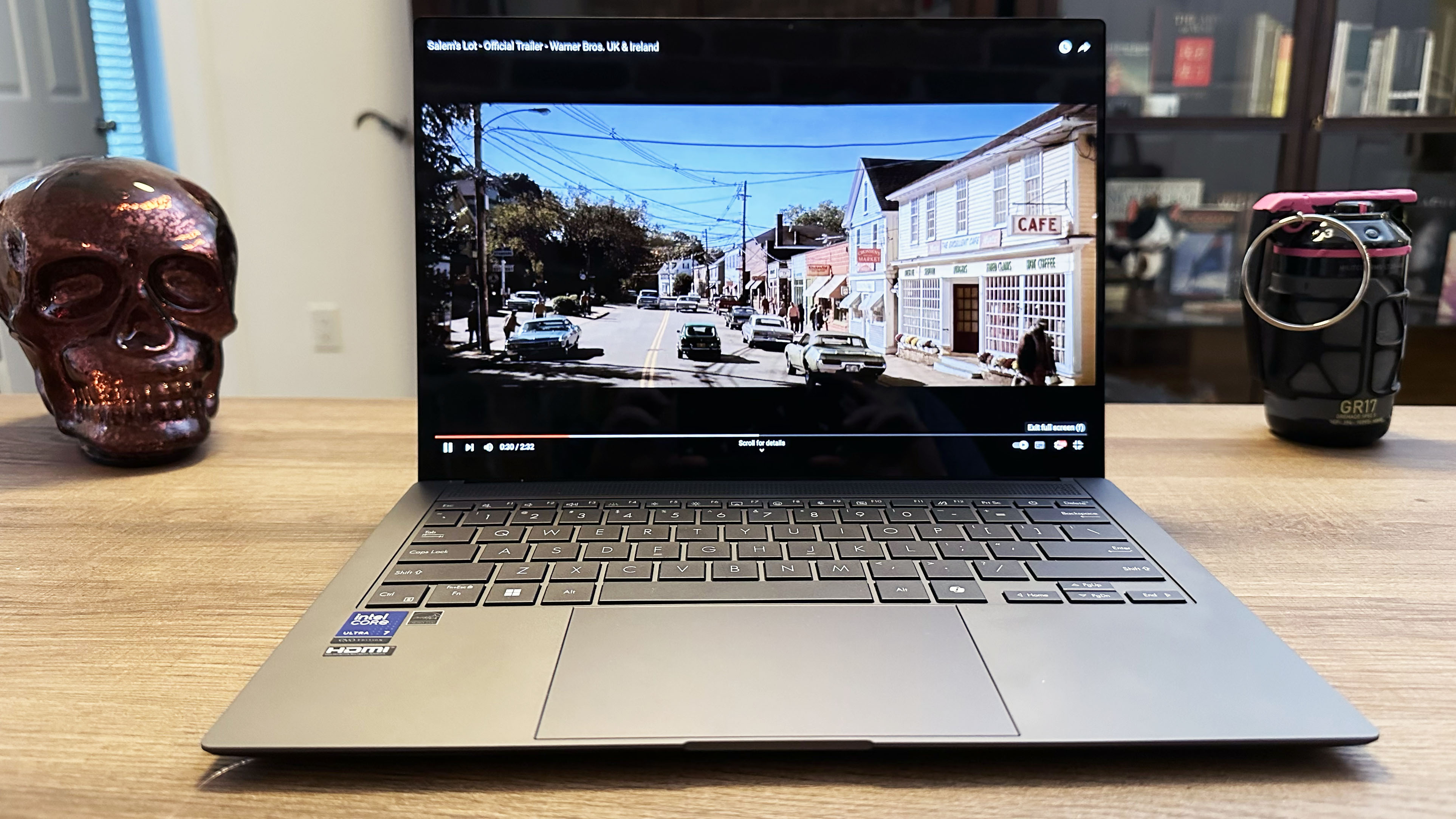
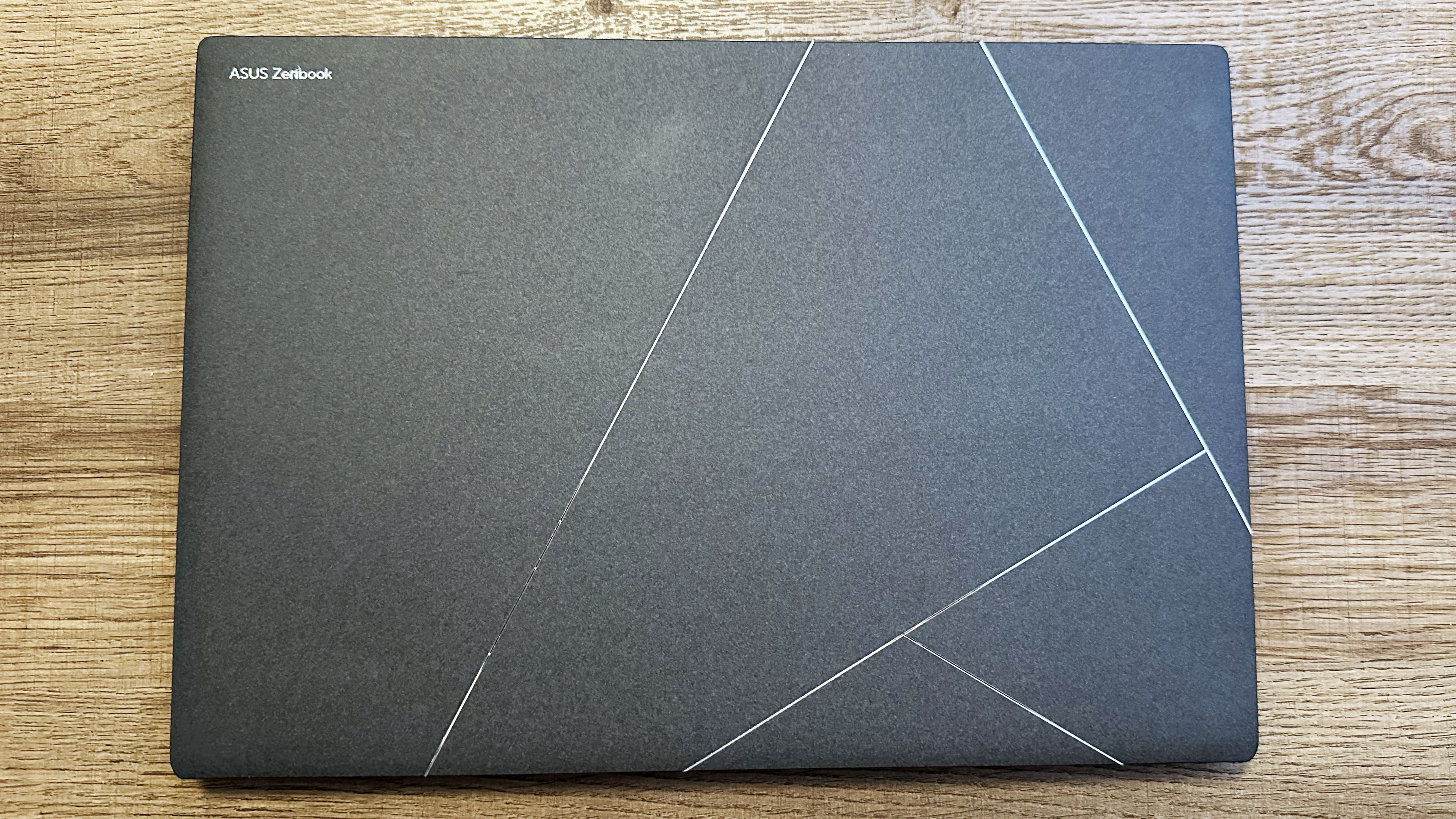
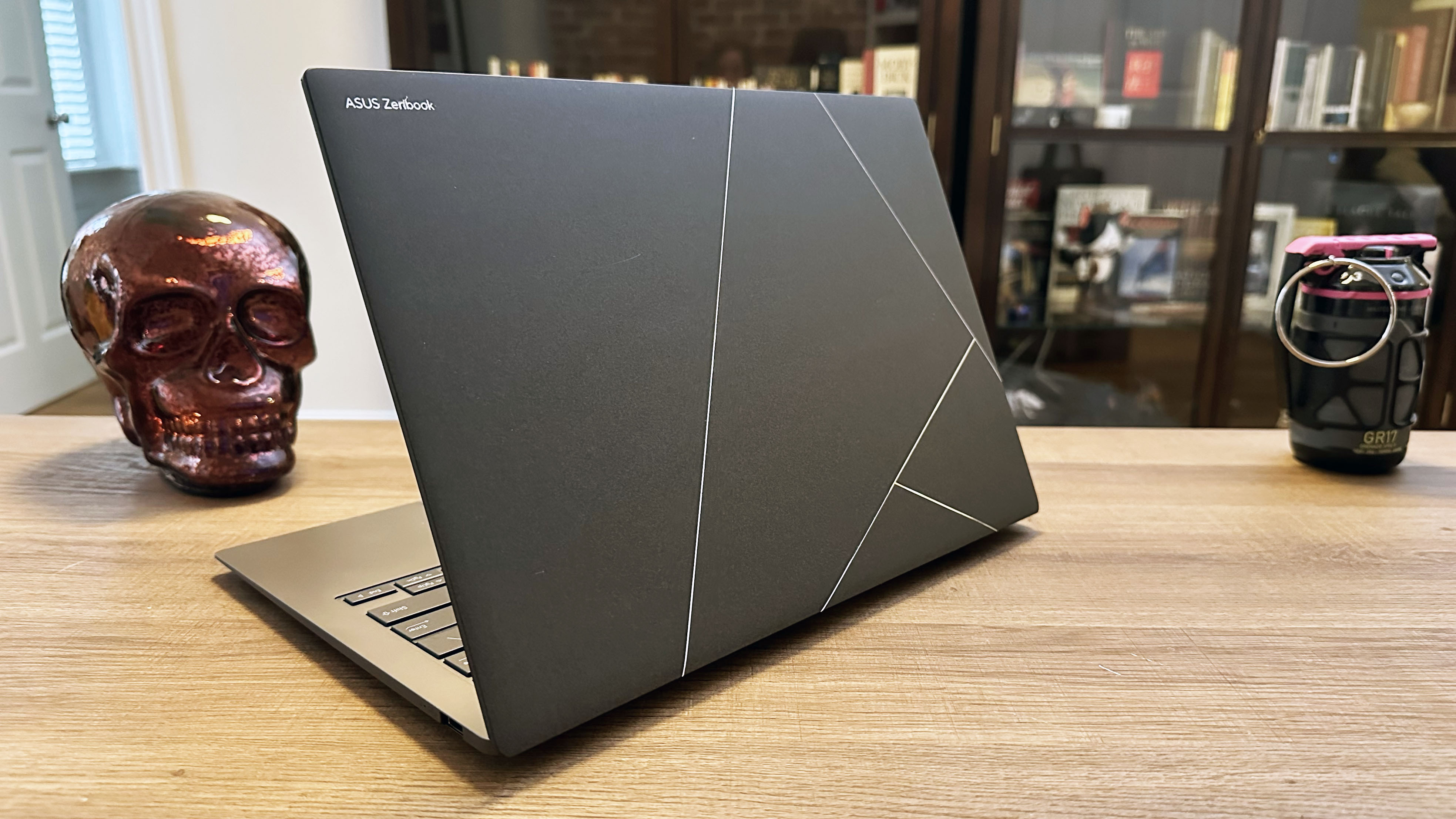
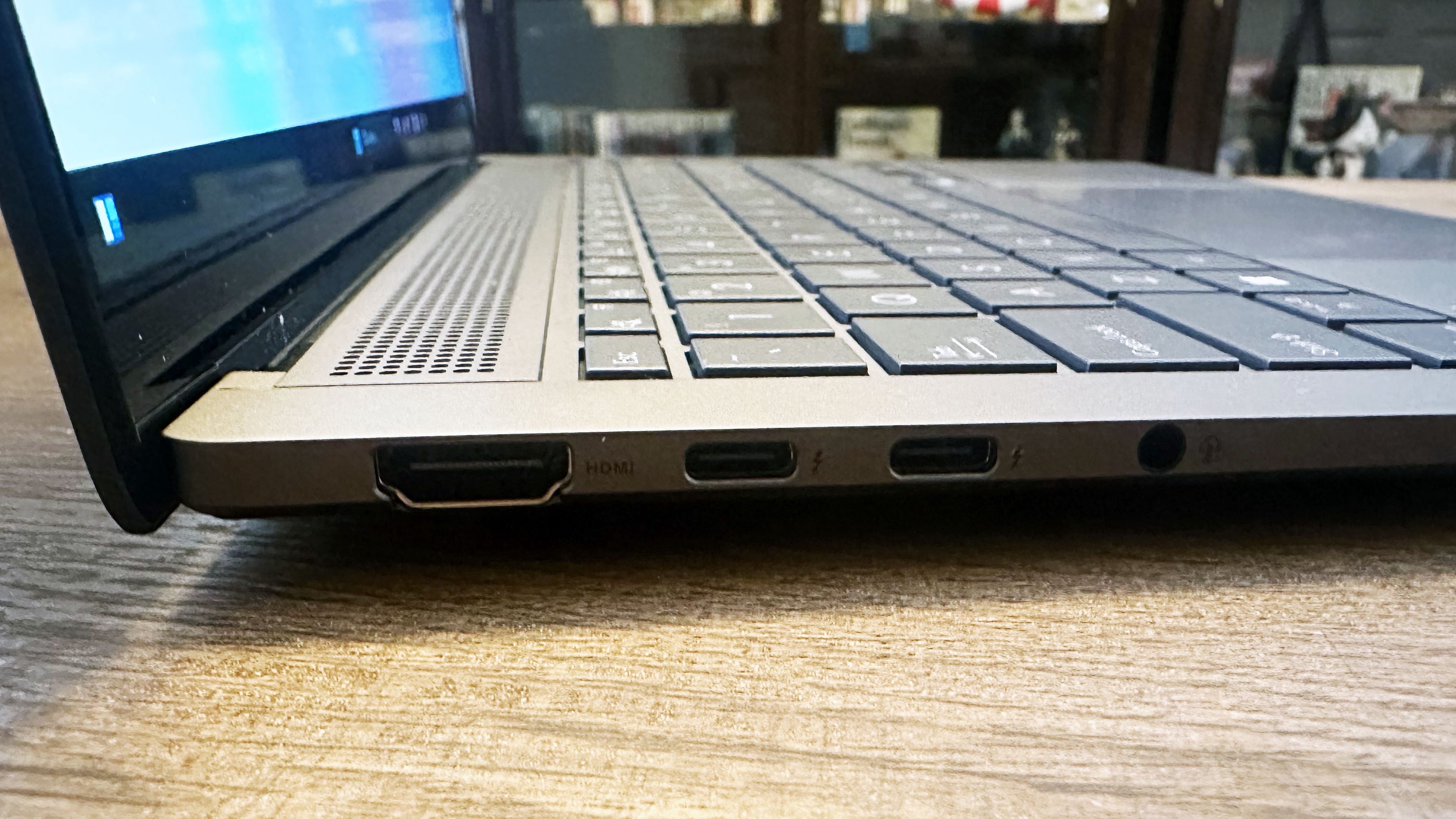
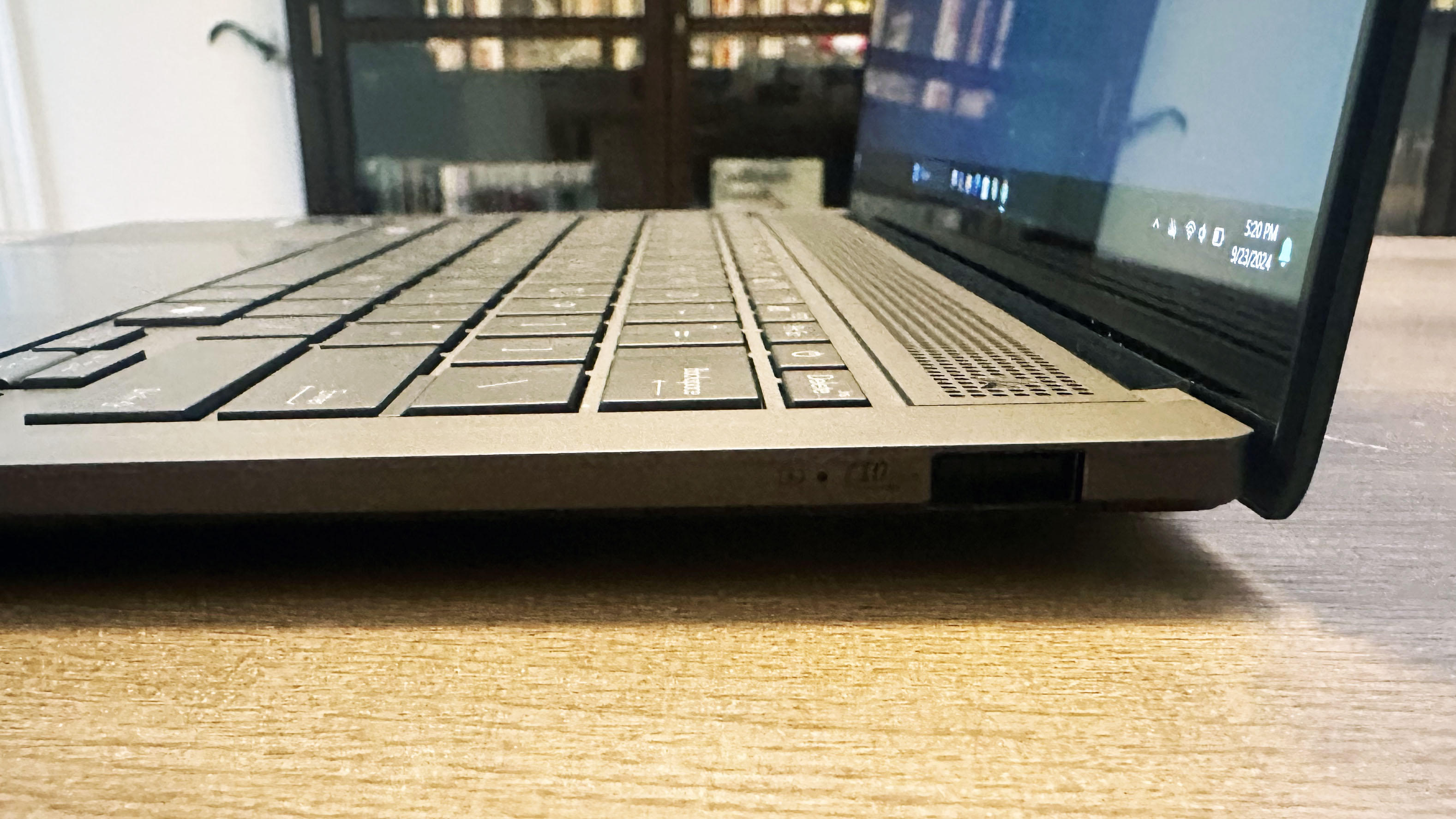
Specifications
Reasons to buy
Reasons to avoid
The Asus Zenbook S 14 is one of the thinnest, lightest, and fastest laptops we've recently tested. It's only 0.47 inches thick at its thinnest point and weighs a next-to-nothing 2.6 pounds. It also has a stunning OLED display and gets nearly 14 hours of battery life.
✔️ Your laptop goes everywhere with you. It barely takes up space in a bag, and it weighs about as much as the average hardcover book. You shouldn't have to worry about straining a muscle carrying it around.
✔️ You want a clamshell laptop. The Asus Zenbook S 14 has the most performance and battery life packed into a traditional form factor. We've seen it go on sale for under $1,000, too, cheaper than the average 2-in-1.
✖️ Mushy keys give you the heebie-jeebies. The Zenbook S 14's keys are shallow, with just 1.1mm of travel, and lack tactile feedback. The springy kind. Not the finger-in-applesauce-kind.
✖️ You won't play PC games under 60 frames per second. Even with a new Intel Core Ultra 200V series chip its Arc iGPU averaged 48 fps across the games we tested at Medium graphics on 1080p. This laptop fared the worst in Shadow of the Tomb Raider at just 19 fps.
As Laptop Mag's Madeline Ricchiuto said in her review of the Asus Zenbook S 14: "This is an impressive launch laptop for Intel Lunar Lake and a win for Asus." Nearly everything about it — its design, portability, performance, battery life, and OLED screen — makes it the best-balanced, thin and light laptop in its class.
It's OLED display and battery life are this laptop's most impressive features. The glossy, 3K display produces rich and accurate colors. Its peak brightness (342 nits), though dimmer than some of its competitors, is still bright enough to ward off the harsh glare of fluorescent office lighting. The 3K display also helps conserves power, while still looking as crisp and clear as 4K; the Zenbook S 14 lasted just under 14 hours in our web surfing battery test.
While that's not as long as some of its competitors, it's impressive how Asus fit a large, 72Wh battery inside the laptop's incredibly thin chassis. That definitely has a hand in powering this laptop past the 10-hour mark.
It handles dozens of open browser tabs and simultaneously running apps without a hitch, too. On the Geekbench 6 cross-platform CPU benchmark, it's evenly matched in single-core performance with the the Asus Zenbook S 16 (AMD Ryzen AI), 2,751 to 2,765, respectively. Just a 0.5% difference.
Multicore performance is a different story, though. It trails behind the Asus Zenbook S 16 (13,282) by 16% and the Asus Zenbook 14 OLED (12,707) by 13%. That's disappointing to see, especially compared to Intel's last-gen Meteor Lake chip.
But the Zenbook S 14 makes up for that with its quick SSD, taking just 17.8 seconds to complete our 25GB File Copy test at a transfer rate of 1,513 MBps.
See our full Asus Zenbook S 14 (UX5406) review.
Best business
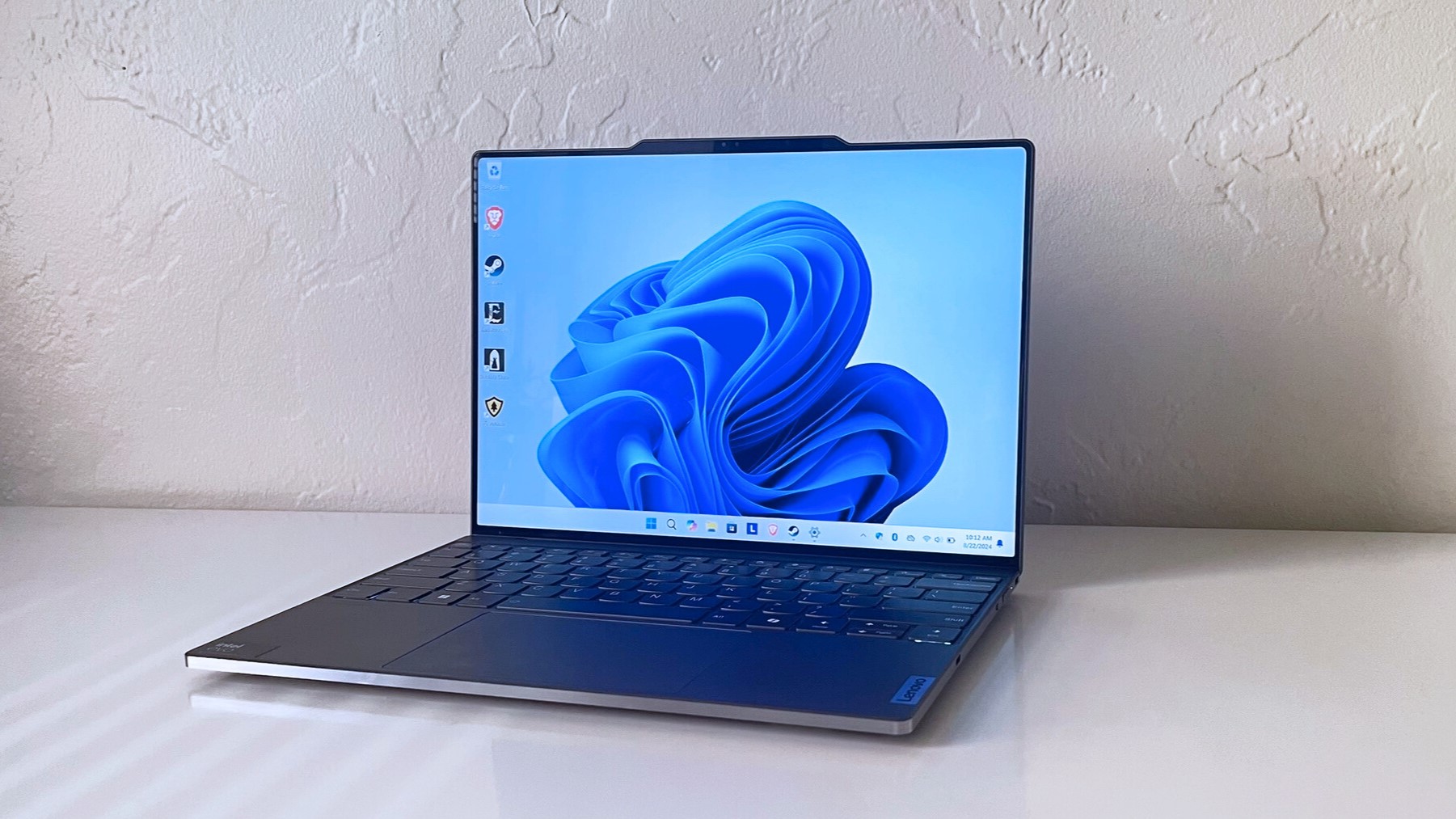
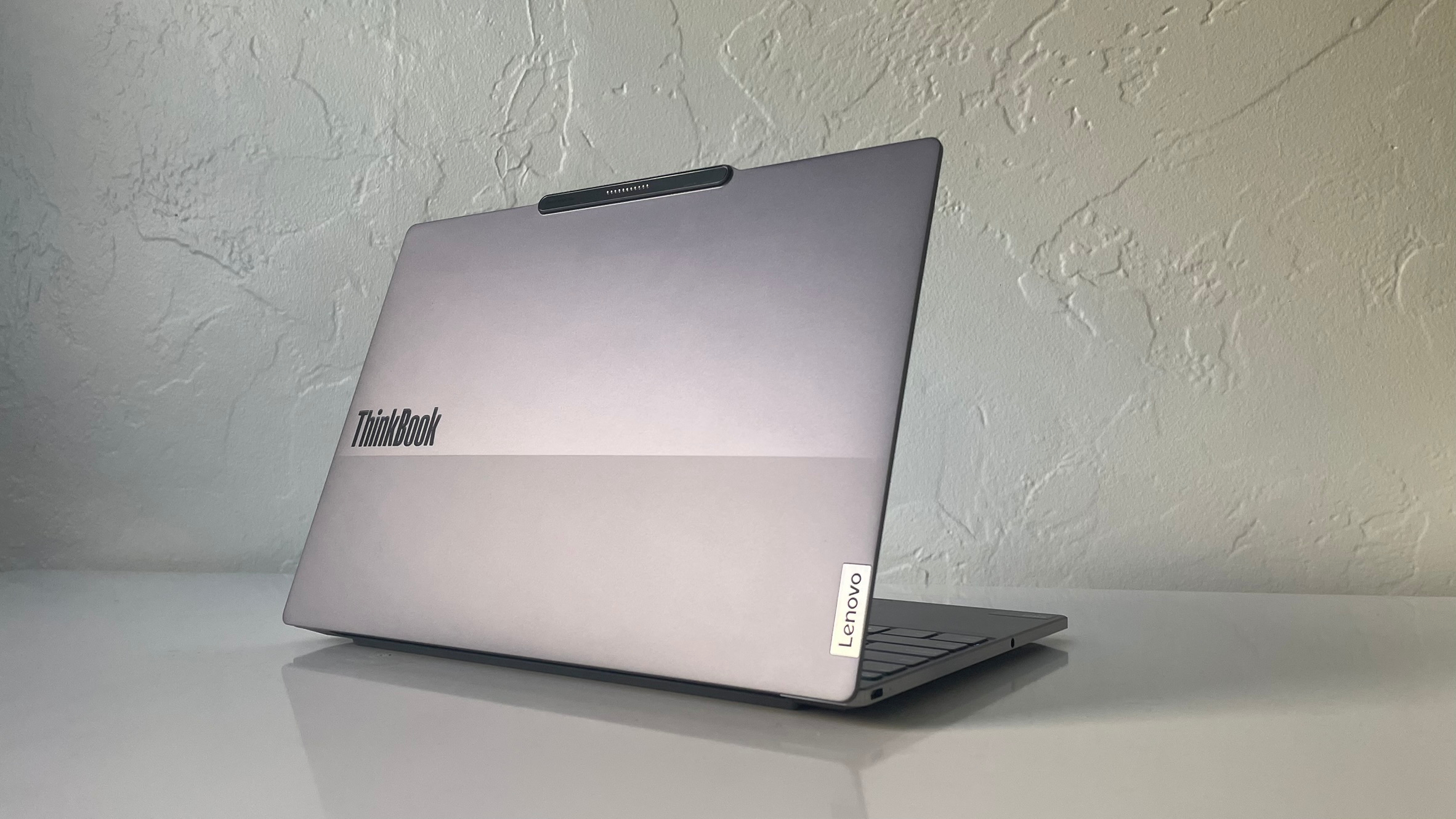
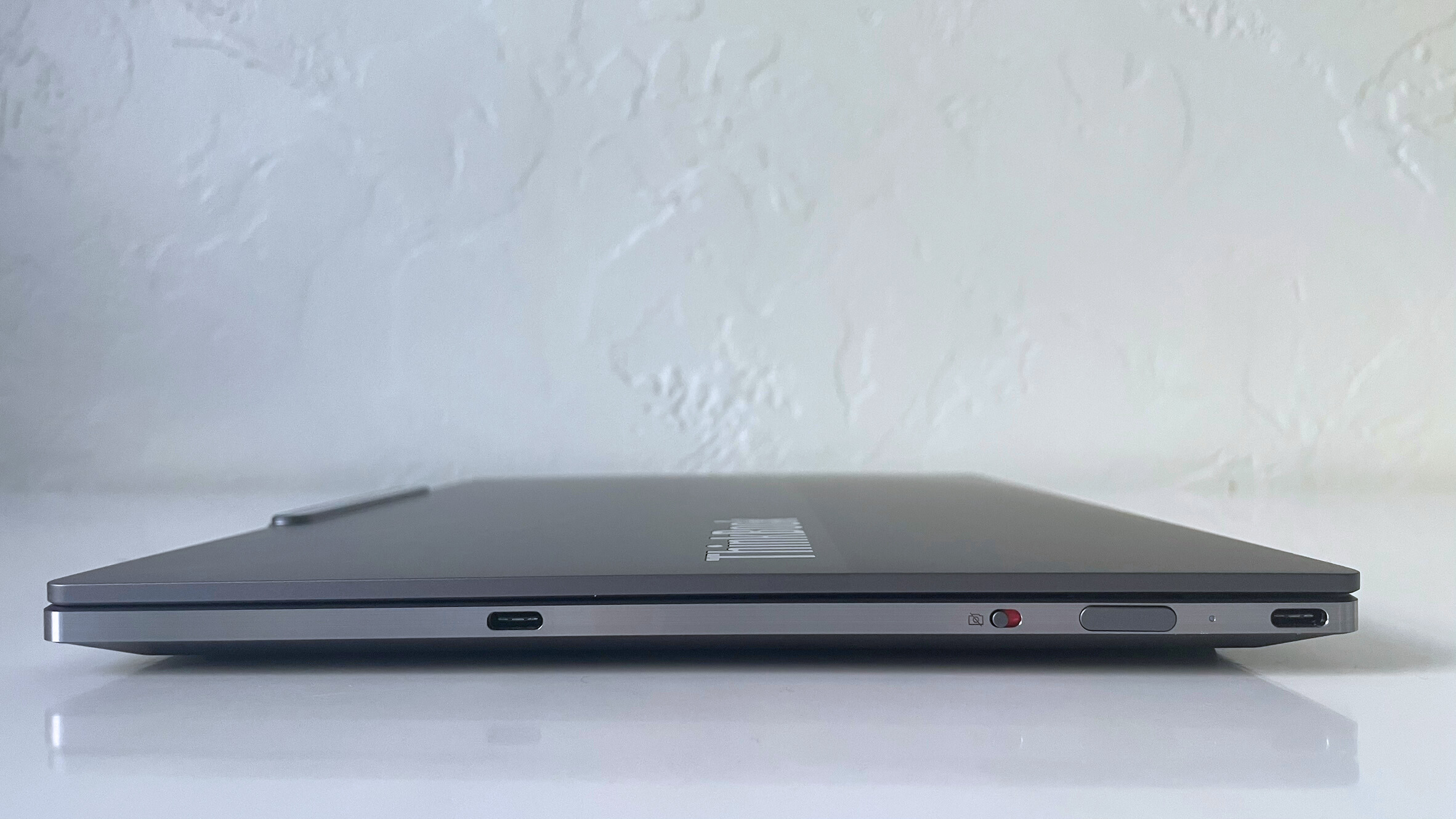
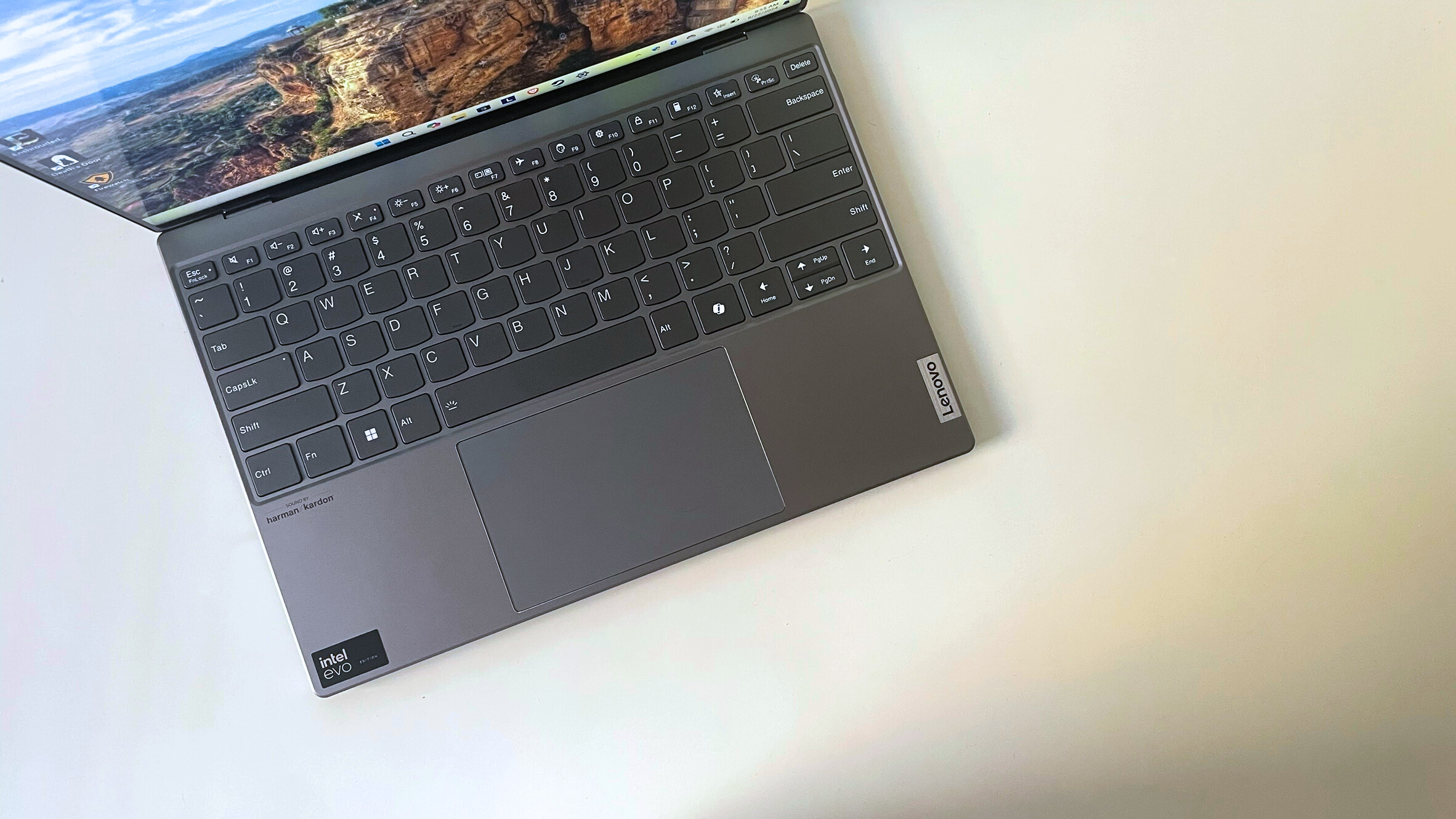
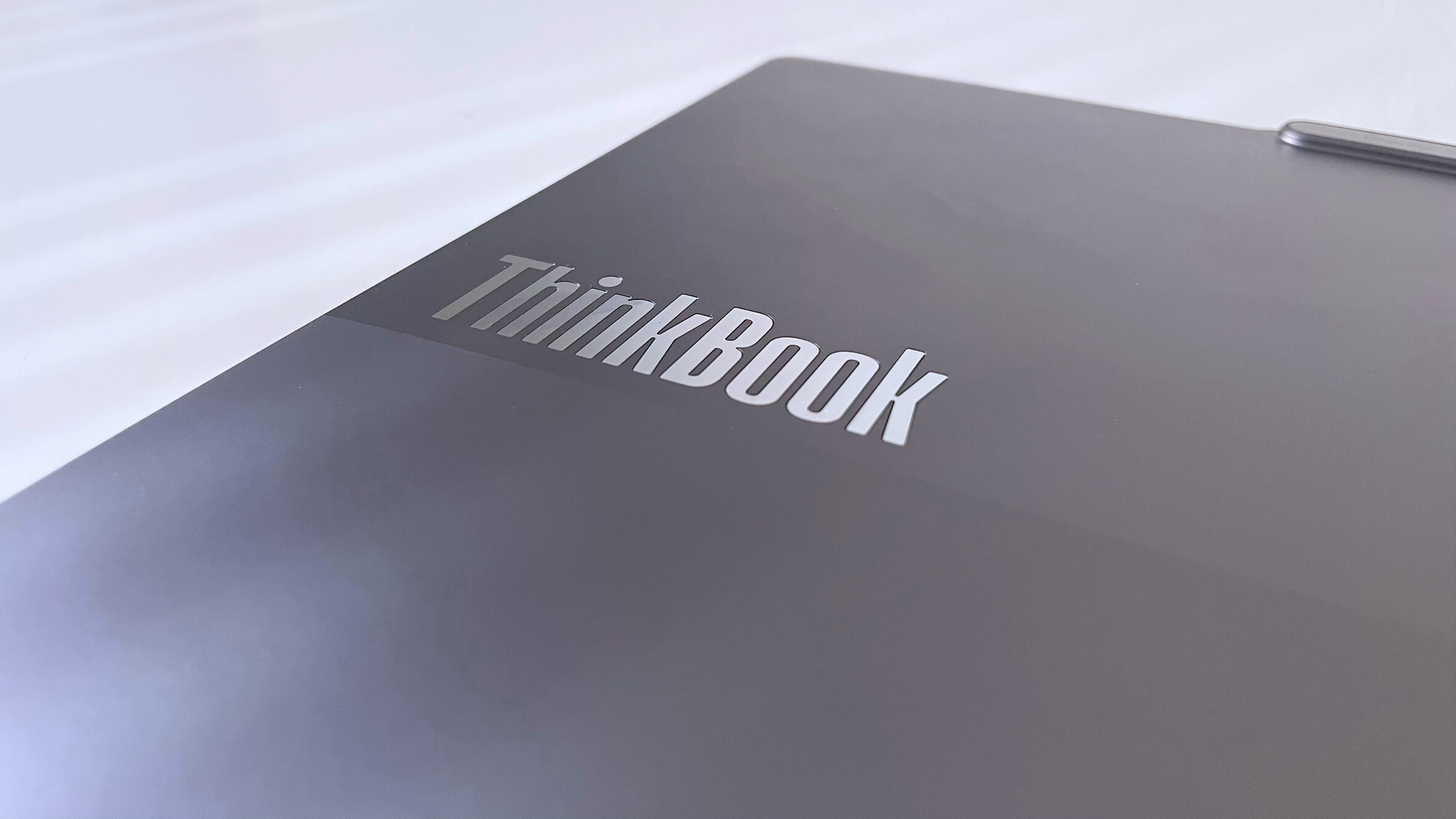
Specifications
Reasons to buy
Reasons to avoid
The Lenovo ThinkBook 13x G4 is a well-rounded laptop with some surprisingly good features. It has more than enough power to handle multiple productivity tasks at once, a solid webcam for work meetings, and a comfortable keyboard .
✔️ You need a work laptop for writing reports, emails, or data entry. This laptop is exceedingly efficient with office administration tasks. It's a piece of cake for it to run multiple productivity apps at the same time.
✔️ You listen to music while you work. Remote workers are most likely in a better position to reap the benefits of this laptop's great speakers. But if you can listen to music in your office, everything comes through crisp and clear, even without maxing out the volume.
✖️ You work long hours away from a desk. The battery might last from sun up to sun down but it will need another charge to keep up with your late nights.
✖️ You do any kind of creative work. This laptop has neither the performance or a vivid enough OLED screen for serious video editing or digital artwork.
A good business laptop should have a powerful CPU, a snappy keyboard, and an office-appropriate chassis. But a great one does all that and more, like the Lenovo ThinkBook 13x G4. Our reviewer, Stevie Bonifield, writes that it has "surprising strengths" for a business laptop, including "seriously impressive speakers." It's the kind of laptop that can be an "an around-the-clock companion."
At 0.5 inches thick and 2.7 pounds, this ThinkBook is as thin and as light as other laptops on this list. It's easy to travel with, whether flying to a conference or walking down the hall to the conference room (or, for you remote workers, to your favorite coffee shop). Its two-toned, silver-gray chassis is business-appropriate without being business-boring. It also has a snappy keyboard with a decent amount of tactile feedback, yet it stays pretty quiet. (I've tested a lot of Lenovo laptops over the years, and I like their keyboard for the same reasons.)
Stevie praises how well Billie Eilish’s “Ocean Eyes” sounded through the ThinkBook's speakers; the bass was smooth, balanced with the highs in a way that created a surround-sound effect.
While this laptop's CPU isn't the most performative compared to some of its closest competition, it still handles numerous open browser tabs with two or three apps open at once just fine. Geekbench 6 benchmark tests revealed a multicore score of 11,058, which is lower than some of its director competitors. But most people will not notice a difference in basic productivity tasks.
Unlike CPU performance, though, battery life is definitely more noticeable, and we wish this laptop lasted longer than 8 hours and 39 minutes. By comparison, every laptop on this list has much more battery life, between two hours and ten hours more.
But if your job doesn't constantly keep you glued to your laptop, or you rarely ever work away from a desk (maybe you're a teacher!), its lower-than-average battery life shouldn't be a huge concern.
See our full Lenovo ThinkBook 13x G4 review.
Benchmark comparisons
Click to view chart data in table format
| Header Cell - Column 0 | Asus Vivobook 16 Flip | Dell Inspiron 14 Plus (7441) | Acer Chromebook Plus Spin 714 | Lenovo Yoga 9i 2-in-1 Aura Edition | Asus Zenbook S 14 (UX5406) | Lenovo ThinkBook 13x G4 |
|---|---|---|---|---|---|---|
Geekbench 6 (Higher is better) | 10,987 | 13,281 | 6,335 | 11,059 | 11,157 | 11,058 |
Handbrake time ((MM:SS), lower is better) | 07:41 | 06:23 | NA | 06:26 | 08:30 | 05:58 |
Battery life - Web surfing (HH:MM) | 13:47 | 18:20 | 9:30 | 12:47 | 13:51 | 08:38 |
SSD transfer speeds (MBps, higher is better) | 1,756 | 1,510 | NA | 1,448 | 1,513 | 1,011 |
DCI-P3 Color Gamut (Higher is better) | 84.4% | 69.1% | 78.7 | 149.2% | 82.0% | 74.0% |
Display Brightness (Nits, higher is better) | 365 | 470 | 355 | 421 | 342 | 477 |
Hottest temperature (95 degree comfort threshold) | 85.5 | 100 | 90.5 | 88.3 | 97.7 | 92 |
Recently Reviewed
Not every laptop can make the best touchscreen laptop page. (You'd be scrolling for days if we included them all!) We review new laptops every week and over 100 laptops yearly, so here's a look at our most recently reviewed laptops that didn't make this page either due to a fault, price, battery life, display brightness, or something else.
Acer Chromebook Spin 312 | Intel Core i3-N305 | Intel UHD integrated graphics | 8GB RAM | 128GB eMMC
Score: ★★★★
Pros: Affordable price; sturdy build; smooth trackpad
Cons: Shallow audio; thin keycaps; grainy webcam
See our full Acer Chromebook Spin 312 review.
Score: ★★★★
Pros: Long battery life; sharp, bright display; solid speakers; incredible performance and graphics
Cons: Over $2K; limited use-case; keyboard isn’t suitable for gaming; runs hot
See our full Asus ROG Flow Z13 review.
Score: ★★★★
Pros: Powerful performance; gorgeous OLED display; satisfying keyboard; durable chassis
Cons: Muffled speakers; mediocre battery life; panel is a bit dim
See our full Asus Zenbook 14 review.
Score: ★★★½
Pros: Sleek, thin-and-light design; great display; roomy keyboard and touchpad
Cons: Battery life could be better; middling performance
See our full HP EliteBook Ultra G1i AI review.
Score: ★★★★
Pros: Powerful Nvidia RTX Ada Generation graphics; strong general performance; bright, vivid display; high audio fidelity with impactful volume; many configuration options; plenty of ports
Cons: Expensive; battery life could be better; gets hot under pressure
See our full HP ZBook Studio 16 G11 review.
Score: ★★★½
Pros: Bright and vivid OLED display; sturdy aluminum chassis; haptic touchpad feels great; punchy speaker system
Cons: Poor price-to-performance ratio; average battery life; light on ports
See our full Lenovo ThinkPad X9-14 Gen 1 Aura Edition review.
Score: ★★★½
Pros: Phenomenal display; top-tier keyboard; stylish design; great audio
Cons: Poor price-to-performance ratio; glass lid is a fingerprint magnet; exceptionally awful webcam quality
See our full Lenovo Yoga Slim 9i (Gen 10) review.
Score: ★★★★½
Pros: Great battery life; solid performance; strong convertible hinges; bright, vivid display; satisfying keyboard feel; stylus included
Cons: The keyboard is a bit cramped; poor audio quality and volume
See our full MSI Summit 13 AI+ Evo review.
Score: ★★★½
Pros: Outstanding performance; attractive thin-and-light design; gorgeous and bright AMOLED touchscreen display; copilot+ and Galaxy AI features
Cons: Disappointing battery life; gets too hot with heavy usage; grainy image from webcam
See our full Samsung Galaxy Book 4 Edge review.
Score: ★★★★
Pros: Bright and vivid touchscreen AMOLED display; over 12 hours of battery life; light for a 16-inch laptop; durable aluminum chassis; galaxy AI and Copilot+ AI features
Cons: Multitasking performance can’t match top competitors; limited key travel can impact typing; disappointing webcam, lacks facial recognition
See our full Samsung Galaxy Book 5 Pro review.
How to find your perfect touchscreen laptop
Whether you're looking for a clamshell or a 2-in-1, there are a few key things to keep in mind before you buy a touchscreen laptop.
Display: You need something bright and sharp
Touchscreen laptops aren't exclusively reserved for artists and designers but many use them. (Some even come with a stylus.) If you're looking for your next digital sketchbook or canvas, you absolutely need a display that can accommodate your creative endeavors. If it's too dim or can't accurately present color, you most likely will be disappointed.
OLED displays generally produce the richest colors with the widest color gamuts, but there are also good IPS displays out there. 80% coverage of the DCI-P3 color gamut should be your minimum if you're an artist, but you'll be better off the closer you get to 100% (or higher in some cases).
We also recommend getting a laptop with a high resolution display since they present sharper images. If you're an artist or designer who creates highly detailed work, a 2K display or higher will let you get into the nitty gritty.
Design: Sturdy portability is a necessity
Flexibility is vital, especially for 2-in-1 laptops. Not only do its hinges need to support up to 360-degree angles, but trying to draw or tapping on a screen that constantly bounces becomes a headache real quick. Creaky hinges and a lid that feels like it'll snap off every time you lift it are an absolute no.
The best touchscreen laptops support themselves in any position and require conscious force to open and close the lid. Laptops with an aluminum chassis are usually the sturdiest, but you'll want to read our reviews and see which ones feel the best in practice.
We also recommend getting a light laptop, anything around four pounds. Depending on the size, some can be a little heavier or lighter, though.
Battery life: The longer the better
Battery life is another key component of any good laptop. If you travel a lot, walk back and forth across campus multiple times a day, or draw in the park against your favorite tree for hours on end, don't count on there being an outlet! Consider a laptop with at least ten hours of battery life, which should get you through most days.
FAQs
Q: Is there an Apple touchscreen laptop?
A: No, currently, no Apple touchscreen laptop is produced by the company. The closest you can get in 2025 is purchasing an iPad Pro 13-inch M4 with an Apple Magic for iPad Pro 13-inch. This combination gives you a powerful detachable 2-in-1 laptop experience, but the big trade-off is that you are running iPadOS rather than macOS. Depending on your usage and software needs, that may be a dealbreaker for you.
As for whether there will ever be an Apple touchscreen laptop, there have been rumors of a foldable MacBook and patents for touchscreen MacBook designs filed by Apple, but it is unclear if any of these designs will ever come to market.
Q: Are there touchscreen gaming laptops?
A: While touchscreen gaming laptops are uncommon, they do exist. The best touchscreen laptop for gaming in 2025 is the Asus ROG Flow Z13 (2025). This detachable 2-in-1 gaming laptop offers a bright and vivid touchscreen display and remarkable performance.
For gamers, the biggest caveat with this laptop is that it only includes integrated graphics, and while our reviewer says they are, "The most powerful integrated graphics I've ever tested," they still can't compare to a dedicated high-end GPU. Asus does have a solution for that, you need to purchase the Asus ROG XG Mobile, an external GPU that plugs into the Z Flow 13 via Thunderbolt 5 and supercharges it with up to an RTX 5090 laptop GPU.
Q: I already have a stylus; will it work with one of these laptops?
A. That depends! Not all touchscreens have stylus support. The ones that do might not support the same type of pens. We recommend checking the manufacturer's website of both the laptop and stylus to be absolutely sure.
This will help you determine what pen protocols the stylus and laptop support. The two main ones are Microsoft Pen Protocol (MPP) and Wacom AES. They're not intercompatible, but some pens support both, while others only support one.
How we test touchscreen laptops
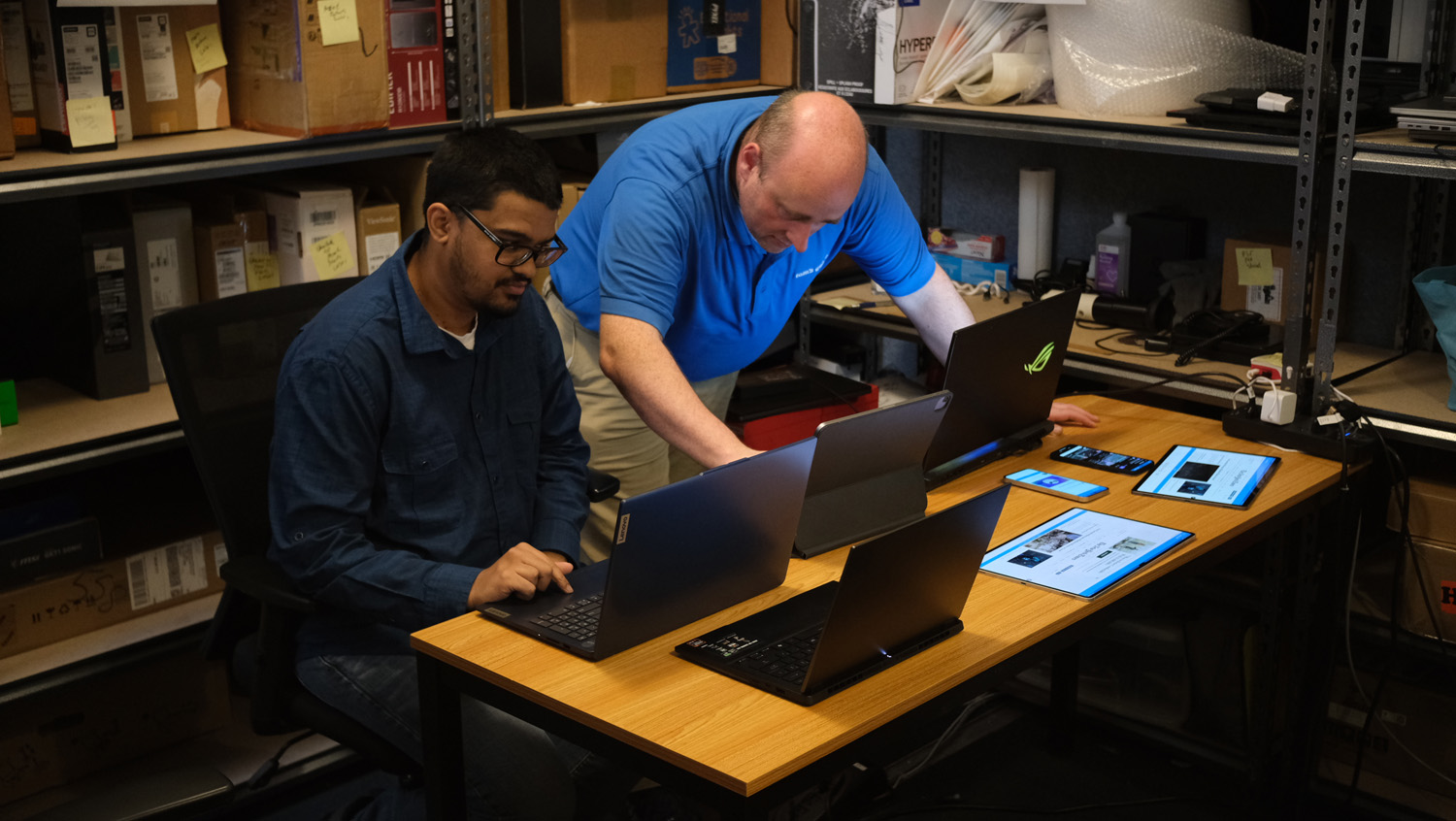
We put each touchscreen laptop through extensive benchmark testing—both synthetic and real-world—before we send it to our reviewers. We evaluate each aspect of the laptop, including its performance, battery life, display, speakers, and heat management.
For synthetic performance, we run each laptop through a gauntlet of benchmarks, including Geekbench 6 and 3DMark professional graphics tests. On Chromebooks, we also use Geekbench 6 in addition to JetStream 2, WebXPRT 4, and CrXPRT 2 to determine their CPU and web performance.
To measure real-world performance on laptops, we: convert a 4K video to 1080p resolution; duplicate a 25GB multimedia file; and run the Sid Meier's Civilization 6 Gathering Storm benchmark with medium settings at 1080p resolution to test graphics.
On both laptops and Chromebooks, we use a Klein K10 colorimeter to measure display brightness and DCI-P3 color gamut. To measure heat output, we play a 15-minute, full-screen video and then measure the surface temperature of different areas on the laptop.
For battery tests, we set the display to 150 nits of brightness and then the laptop navigates a controlled group of web pages with text, images, and videos.
Once a laptop is through our initial lab tests, our expert reviewers take over, using it extensively in their daily work for approximately a week. This hands-on, real-world approach, coupled with our lab data, enables Laptop to deliver a detailed and accurate review of every laptop.
See this page on How We Test Laptops for more details on our benchmarking procedures.
Why Trust Laptop Mag
Laptop Mag reviews over one hundred different laptops yearly, from paperweight ultralights to everyday workhorses to lumbering gaming notebooks that scorch the frame rates of even the hottest AAA games. We're not just experts in the laptop field, as we go one step further by meticulously testing smartphones, tablets, headphones, PC accessories, software, and even the latest in gaming.
We are 100 percent independent and have decades of experience to help you buy with confidence. In fact, Laptop Mag has been testing and reviewing products for three decades and continues to deliver trustworthy reviews you can rely on.
Our experienced team of writers and editors scour the available information about the laptop and put it through its paces to determine which is best for you. But before they start, the testing team subjects each system to a rigorous regimen of synthetic and real-world tests to see how a system handles the type of work and games you’re most likely to throw at it.
One of the world's largest technology publishers, Future Publishing, enforces our editorial trustworthiness. As a company, we have unrivaled experience across every tech sector — and we're the group's specialist for all things mobile tech.
Sign up to receive The Snapshot, a free special dispatch from Laptop Mag, in your inbox.

Joanna Nelius is a contributing writer to Laptop Mag. She has reported on and reviewed laptops for The Verge, Gizmodo, PC Gamer, and USA Today.
